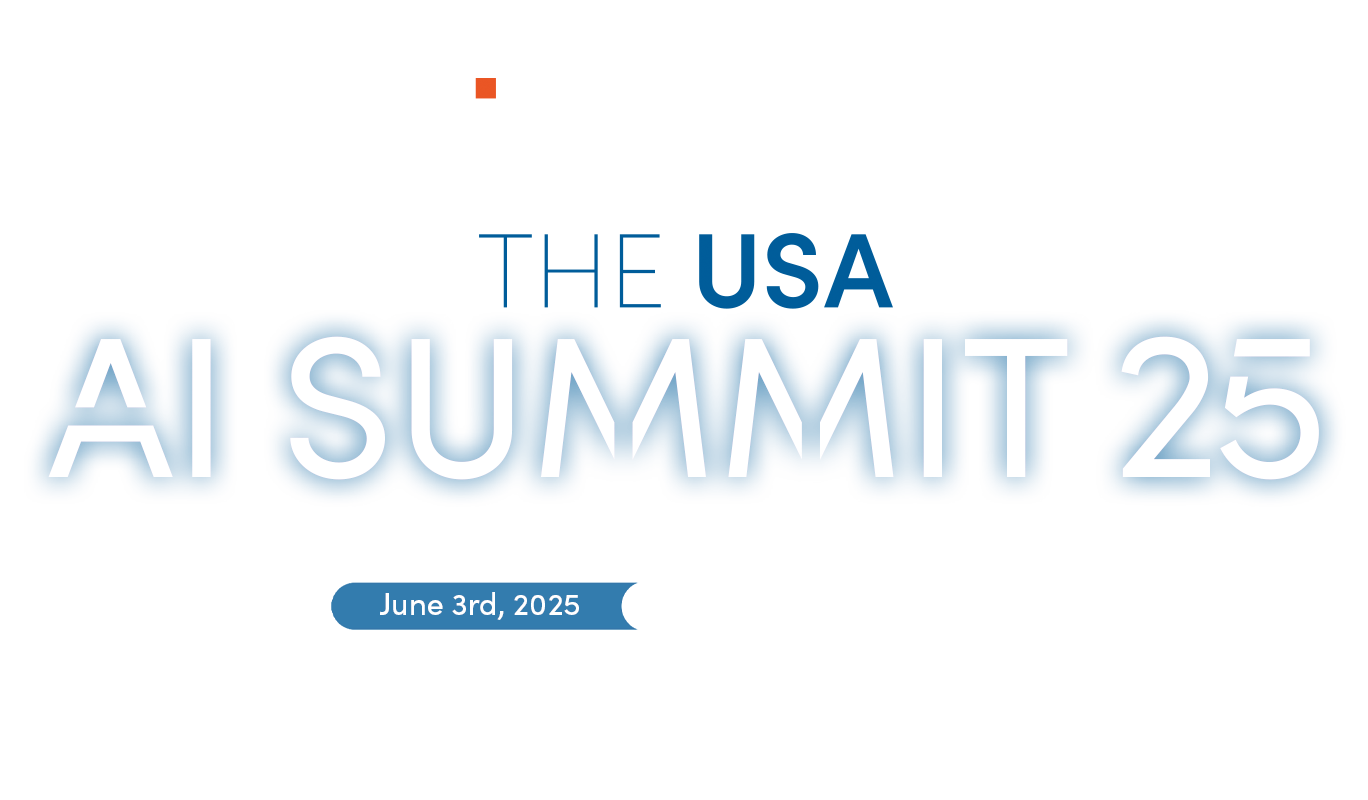
#AI2025USA
Thank you to all speakers, sponsors, partners & delegates who joined us. We look forward to seeing you at the 2026 edition. In the meantime, should you wish to find out more about speaking and sponsorship opportunities at next year’s event, please contact anne-lise.simon@forum-global.com
The USA Artificial Intelligence Summit took place in Washington, D.C. on June 3rd, 2025. The conference provided a top-level meeting space for the AI community in the US and further afield to explore the nation’s approach to AI development, adoption and governance in the context of an emerging global AI order and to examine the pivotal role of AI in shaping the future.
The US finds itself at a critical juncture, with the opportunity to cement its dominance in the rapidly advancing field of Artificial Intelligence. By prioritizing bold, America-centric initiatives to promote AI adoption and deployment, a wave of innovation can be unleashed, unlocking new business opportunities, and fuelling socio-economic growth. The Summit served as a crucial platform, bringing together policymakers, industry leaders, and AI experts. The conference explored AI innovation and governance in the US amidst a complex and increasingly competitive global landscape.
Discussions delved into the key policy shifts under the new Trump Administration, particularly the forthcoming AI Action Plan. The gathering dissected the potential impact of state laws on a future federal AI policy, strategized on expanding AI infrastructure, and explored ways to enhance public trust in AI. Real-world AI applications took center stage, followed by an in-depth exploration of the intricate balance between national security, international collaboration and increasing geopolitical competition.
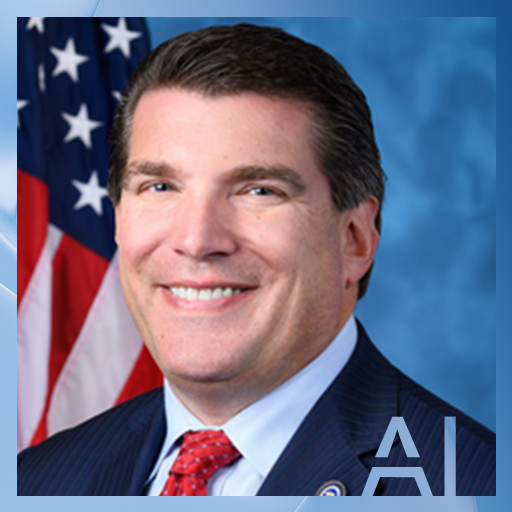
 Jay Obernolte, Vice Chair of the Congressional Artificial Intelligence Caucus, US House of Representatives
Jay Obernolte, Vice Chair of the Congressional Artificial Intelligence Caucus, US House of Representatives U.S. Congressman Jay Obernolte proudly represents California’s 23rd District in the U.S. House of Representatives. A video game developer and business owner, Rep. Obernolte is dedicated to ensuring the High Desert and Inland Empire have a strong voice fighting for their interests in Congress.
Rep. Obernolte proudly serves on the House Committee on Energy and Commerce where he is a member of the Subcommittee on Communications and Technology; the Subcommittee on Health; and the Subcommittee on Commerce, Manufacturing, and Trade. He also serves on the House Budget Committee and House Committee on Science, Space, and Technology as the Chairman of the Subcommittee on Research and Technology. He is currently the only serving member of Congress with a graduate-level degree in AI.
Previously, Rep. Obernolte served as a member of the California State Legislature representing the state’s 33rd Assembly District and as Mayor of the City of Big Bear Lake. He has also served on the boards of the Big Bear Lake Fire Protection District, the Mojave Desert and Mountain Integrated Waste Authority, the Mountain Regional Transit Authority, the League of California Cities Desert-Mountain Division, and the Big Bear City Airport District. In these positions he worked across partisan lines to pass legislation helping California’s hardworking families by lowering taxes, stopping government encroachment into privacy and personal liberties, and upholding law and order. He has also been a strong advocate for local veterans, defending funding for the Barstow Veterans Home and helping ensure California veterans receive the care and respect their service has earned.
Rep. Obernolte lives in Big Bear Lake with his wife, Heather. They have two sons, Hale and Troy. In addition to owning a videogame development studio, Rep. Obernolte is a certified flight instructor and a teacher of martial arts. He holds a B.S. in Engineering and Applied Science from the California Institute of Technology (Caltech), an M.S. in Artificial Intelligence from the University of California, Los Angeles (UCLA), and a Doctorate in Public Administration from California Baptist University (CBU).
Vice Chair of the Congressional Artificial Intelligence Caucus
US House of Representatives
*via pre-recorded message
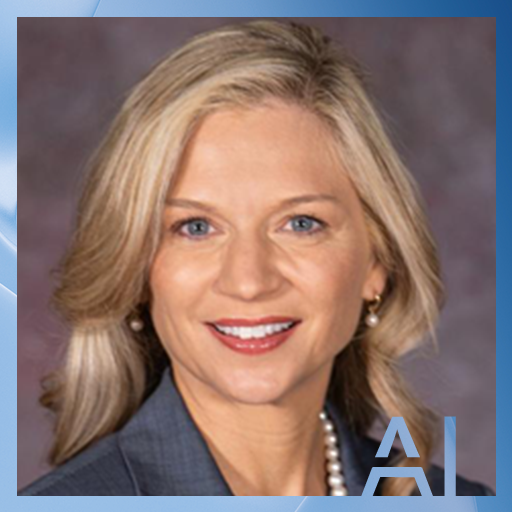
 Commissioner Melissa Holyoak, Federal Trade Commission
Commissioner Melissa Holyoak, Federal Trade Commission Melissa Holyoak was sworn in March 25, 2024 as a Commissioner of the Federal Trade Commission.
Holyoak brings extensive experience as a litigator and leader. Most recently, she served as Solicitor General with the Utah Attorney General’s Office where she oversaw the civil appeals, criminal appeals, constitutional defense and special litigation, and antitrust and data privacy divisions. She also managed multistate matters including those involving consumer protection and antitrust claims.
Before taking on that role, she served as president and general counsel of Hamilton Lincoln Law Institute, a Washington, D.C.-based public interest law firm and in other public interest attorney positions with the Competitive Enterprise Institute and the Center for Class Action Fairness. Holyoak represented class members challenging unfair class actions and consumers fighting regulatory abuse in federal district courts and appellate courts across the country.
Holyoak has argued in the Fifth, Seventh, Eighth, Ninth, Tenth and D.C. Circuits. She is a former prosecutor and attorney with O’Melveny & Myers LLP. She graduated from the University of Utah S.J. Quinney College of Law in 2003 as a member of the Order of the Coif and the Law Review. Holyoak is a member of the bars of Utah, D.C., and Missouri (inactive). Her husband Dr. Joshua Holyoak is a urologist and together they have four beautiful children.
Commissioner
Federal Trade Commission
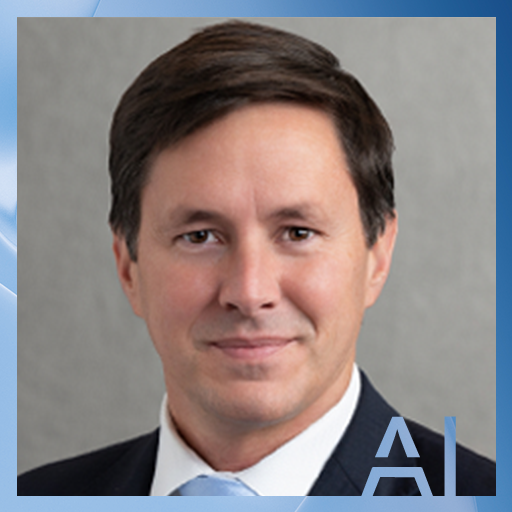
 Sen. Kirk Cullimore, State Senator, Utah
Sen. Kirk Cullimore, State Senator, Utah Sen. Kirk A. Cullimore was elected to the Utah Senate in 2018 and represents District 19, the southeast part of Salt Lake County and sections of northeast Utah County. He currently serves as the majority leader in the majority caucus.
Sen. Cullimore received an associate’s degree in music from Utah Valley University. He then served a two-year mission for the Church of Jesus Christ of Latter-day Saints in the Philippines. After returning, he continued his education and received a bachelor’s degree in music from Brigham Young University. He subsequently taught music for six years and managed a music teaching studio. Sen. Cullimore then went on to pursue a law degree at the University of Oklahoma and began his law career in Oklahoma primarily in Federal Indian Law. He moved back to Utah and runs his own law practice focusing on general business representation, land use, water development and technology issues.
In his spare time, Sen. Cullimore volunteers as chairman of the board for the Intermountain Suzuki String Institute, and is a board member for the Suzuki Association of America. He is also on the board for the Salt Lake Regional Medical Center, a member of the Utah Valley University Alumni Association and formerly co-chaired the Brookwood Elementary School Community Council and served as the government affairs chair for the Utah Apartment Association. Additionally, he enjoys being an accompanist for an elementary school choir.
Sen. Cullimore and his wife Heather live in Sandy, Utah, with their six children. They stay busy attending their kids’ activities including violin, cello, dance and soccer.
State Senator
Utah

 Rep. Giovanni Capriglione, State Representative, Texas
Rep. Giovanni Capriglione, State Representative, Texas Giovanni is a successful small businessman and proven job creator. He owns a small investing firm that specializes in investing in other small businesses, many based here in Texas. He sees how burdensome government regulations, high taxes and frivolous lawsuits hurt our economy and kill jobs. He wants to get government out of the way to allow entrepreneurs to grow their businesses and create jobs.
Prior to owning his own company, Giovanni was a Senior Vice President at an investment firm where he managed the loan and equity portfolios of various American businesses. Before that Giovanni held various positions at computer engineering companies primarily focused on semiconductor design and Internet products.
Giovanni is a grassroots fighter for conservative government. Giovanni has spent his time helping Republicans defeat Democrats across the country, volunteering on behalf of Republican candidates in key races in Texas and other states. Locally he led successful campaigns against property tax increases.
Giovanni is always on the front lines fighting for conservative solutions and accountable government.
Giovanni has been married for 21 years to his wife Elisa and has three daughters who attend local public schools. They are active in their church and community, co-founding the Southlake Lions Club and supporting dozens of other local organizations. Giovanni has a BS in Physics and an MBA in finance from Santa Clara University.
In the Texas House, Giovanni currently serves on several important committees with the goal to effectively represent the residents of House District 98. Giovanni is active in the community with pro-life, business development and other charitable groups.
State Representative
Texas
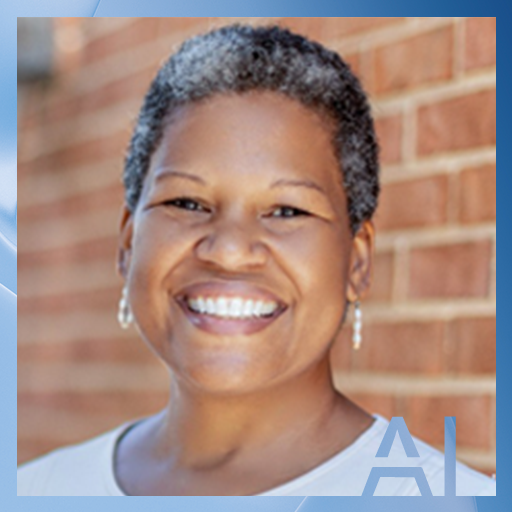
 Del. Michelle Lopes Maldonado, Virginia House of Delegates
Del. Michelle Lopes Maldonado, Virginia House of Delegates Delegate Michelle Lopes Maldonado represents Virginia’s 20th House District in Northern Virginia. She serves as Chair of the Affordable Housing Policy Committee for the House Democratic Caucus as well as Chair for the Judicial Subcommittee of the Courts of Justice and the Insurance and Financial Institutions Subcommittee for Labor and Commerce. The Delegate also is a member of the Privileges & Elections and Communications and Technology & Innovation Committees.
As a former technology lawyer and tech leader, Delegate Maldonado is Founding Chair of the General Assembly’s Technology & Innovation Caucus and a member of the NCSL national Task Force on Artificial Intelligence, Cybersecurity & Privacy. She also sits on the Joint Commission on Science and Technology (JCOTS) and its Subcommittees on AI and Blockchain, as well as the Southern Regional Education Board (SREB) Commission on AI In Education. Delegate Maldonado’s additional active Commission membership includes the Health Insurance Reform Commission (HIRC).
Among Delegate Maldonado’s signature legislation are Virginia’s first Online Child Data Privacy Act, the Baby Food Protection Act, enabling legislation for expedited prior authorizations for medical procedures, the establishment of annual medicare gap healthcare enrollment windows, and mandatory disclosures by prescribers of opioid prescription drugs, as well as four laws regarding the protection of elders and vulnerable adults against financial exploitation, renter protection, and protection of family members of domestic violence.
In her non-elected capacity, Delegate Maldonado has deep experience in strategic partnerships and business development, along with technology, and workforce development. As a result of her work, she has been recognized as “Woman of The Year,” “Top Corporate Leader,” among the “12 Powerful Women in the Mindfulness Movement,” a “2024 Impact Maker” by Virginia Magazine, and was inducted as an honorary member into the Golden Key International Honor Society. Delegate Maldonado’s work has been featured in the DQ Institute in association with the World Economic Forum, United Nations Global Engagement Summit, the Mindful Leader Summit, Huff Post, and Thrive Global. She is a proud graduate of Barnard College at Columbia University and The George Washington University School of Law. She and her family live in Northern Virginia.
Virginia House of Delegates
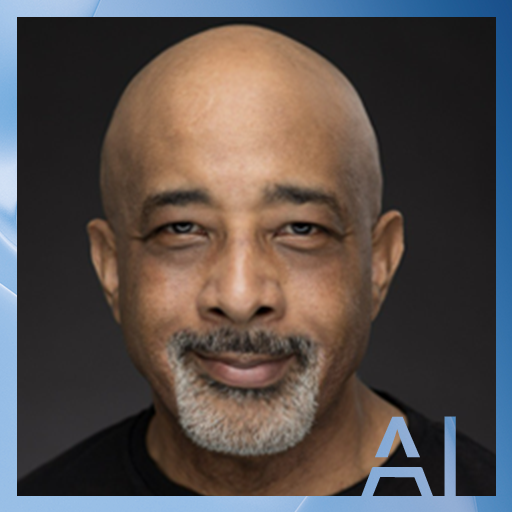
 Dr. Mike Horton, Chief Artificial Intelligence Officer, U.S. Department of Transportation
Dr. Mike Horton, Chief Artificial Intelligence Officer, U.S. Department of Transportation Accelerating AI adoption, governance, policy, IT infrastructure, data structures, risk management, workforce talent acquisition, training, and inspiration to support innovative AI business solutions and research.
Seasoned graduate-level adjunct professor for artificial intelligence and machine learning governance and platforms, business intelligence and analytics, advanced statistics, complex algorithms and data structures, and advanced database development.
Chief Artificial Intelligence Officer
U.S. Department of Transportation
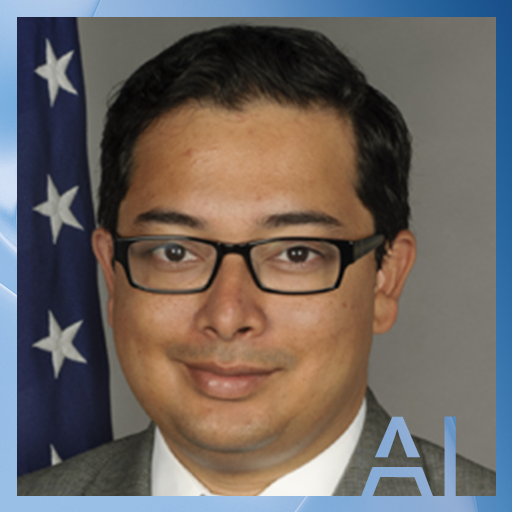
 Neelesh Nerurkar, Acting Principal Deputy Director and Director of Infrastructure Policy, Office of Policy, U.S. Department of Energy
Neelesh Nerurkar, Acting Principal Deputy Director and Director of Infrastructure Policy, Office of Policy, U.S. Department of Energy Neelesh Nerurkar is the Acting Principal Deputy Director & Executive Director and the Director of Infrastructure Policy. Leading a team of experts, he advises the Secretary of Energy, the White House, and Congress on policies to drive investment in affordable, reliable, and secure energy solutions.
Prior to joining OP, Nerurkar was Vice President at Clearview Energy Partners, where he advised institutional investors and corporate strategists on energy market and policy issues. He previously served as Deputy Assistant Secretary at DOE’s Office of Fossil Energy and as senior energy policy advisor at the White House National Security Council and National Economic Council, Department of State, and Congressional Research Service. He has also served as an energy economist in government and industry.
Nerurkar holds a B.A. from the University of Oklahoma and an M.A. from the Johns Hopkins University School of Advanced International Studies.
Acting Principal Deputy Director and Director of Infrastructure Policy, Office of Policy
U.S. Department of Energy
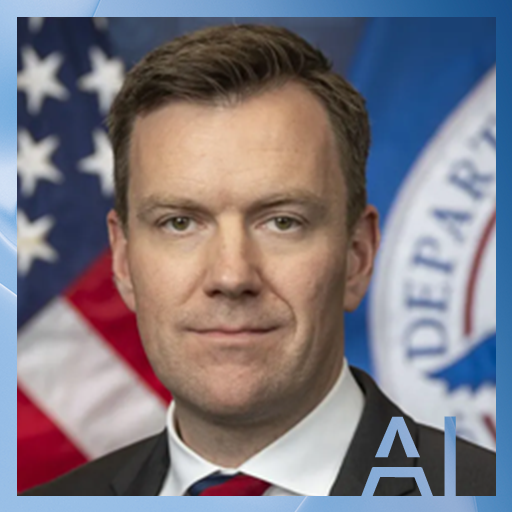
 Roman Jankowski, Chief Privacy Officer, U.S. Department of Homeland Security
Roman Jankowski, Chief Privacy Officer, U.S. Department of Homeland Security Roman Jankowski was appointed as the Chief Privacy Officer and Chief Freedom of Information Act (FOIA) Officer for the Department of Homeland Security (DHS) on January 20, 2025. In this capacity, he leads efforts to uphold privacy protections, promote transparency, and ensure compliance with federal privacy and FOIA laws across the department.
Prior to this role, Mr. Jankowski served as Senior Investigative Counsel at the Heritage Foundation’s Oversight Project, where he focused on advancing transparency and accountability across federal, state, and local government operations.
Mr. Jankowski brings a wealth of experience from his prior tenure at DHS, where he held key positions from 2013 to 2021. His roles included Chief of Staff of the Privacy Office, Senior Advisor, Privacy Office Advisor, and Disclosure Team Lead at the Federal Emergency Management Agency (FEMA). During his time at DHS, he played a pivotal role in developing and implementing policies to safeguard privacy and manage disclosures effectively.
In addition to his DHS experience, Mr. Jankowski has contributed to federal policy development at the Department of Defense (DoD), where he worked on critical DoD issuances and DoD management instructions and directives.
Mr. Jankowski earned his Juris Doctor (J.D.) from the University of the District of Columbia David A. Clarke School of Law and holds a Bachelor of Arts (B.A.) degree from the University at Buffalo. His extensive public service and commitment to transparency underscore his dedication to protecting individual privacy and promoting government accountability.
Chief Privacy Officer
U.S. Department of Homeland Security
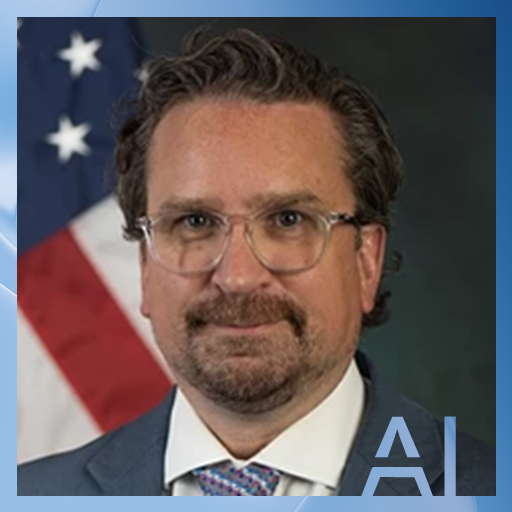
 Dr. Sterling Thomas, Chief Scientist, Government Accountability Office (GAO)
Dr. Sterling Thomas, Chief Scientist, Government Accountability Office (GAO) Sterling is a research scientist with strong experience in human disease, molecular pathology, Big Data analytics, and computer programming. His projects have ranged from developing human diagnostics to developing financial algorithms for equities markets. Sterling has managed several laboratories and research teams including serving as a Director. He has direct experience with small businesses and startups, non-profit research institutions and academic research laboratories; including acquiring start-up funds and peer-reviewed grant submission.
Specialties: Bioinformatics, genomics, biomarker discovery, proteomics, structural informatics, biomathematics, molecular pathology, anatomical pathology, high-performance computing, and quantitative finance.
Chief Scientist
Government Accountability Office (GAO)

 Tess deBlanc-Knowles, Special Assistant to the Director for Artificial Intelligence, National Science Foundation (NSF)
Tess deBlanc-Knowles, Special Assistant to the Director for Artificial Intelligence, National Science Foundation (NSF) Tess DeBlanc-Knowles serves as Special Assistant to the Director for Artificial Intelligence at the National Science Foundation (NSF), where she oversees NSF’s implementation of the Executive Order on the Safe, Secure, and Trustworthy Development and Use of Artificial Intelligence and works across the agency to coordinate AI initiatives and AI policy. In addition, she holds the position of Strategic Advisor for Technology Policy and Strategy within NSF’s Directorate for Technology, Innovation and Partnerships.
Prior to stepping into these roles, Tess spent two years as a senior policy advisor within the White House Office of Science and Technology Policy (OSTP). While at OSTP, she led policy efforts focused on strengthening the nation’s AI innovation ecosystem and co-chaired the National AI Research Resource Task Force. She also led the development of the National Strategy to Advance Privacy-Preserving Data Sharing and Analytics and the National AI Research and Development Strategic Plan: 2023 Update.
Before joining NSF, Tess served as Director for Research and Analysis at the National Security Commission on Artificial Intelligence (NSCAI). She also spent time as Chief of Staff at the Atlantic Council, at U.S. Special Operations Command, and in the Office of the Deputy Assistant Secretary of Defense for Countering Weapons of Mass Destruction.
Special Assistant to the Director for Artificial Intelligence
National Science Foundation (NSF)

 Stephen Miller, Chief Technology Officer, The Office of the Chief Technology Officer, Government of the District of Columbia
Stephen Miller, Chief Technology Officer, The Office of the Chief Technology Officer, Government of the District of Columbia Stephen N. Miller is the 7th Chief Technology Officer at the Office of the Chief Technology Officer (OCTO). Director Miller has more than two decades of technology organization experience, including 17 years in District Government supporting and leading application development and operations within OCTO. Director Miller recently served as Deputy CTO for OCTO’s Digital Services Department, where he led the teams responsible for how the District Government plans, designs, develops and continuously improves upon technical solutions for the residents, businesses, visitors, and staff of the District Government. Director Miller’s teams oversee the implementation, operation and enhancement of enterprise platforms supporting District-wide collaboration, data management, process improvement, solution design, quality assurance, technical implementation, and organizational change management.
Chief Technology Officer
The Office of the Chief Technology Officer, Government of the District of Columbia

 Brando Benifei, Chair of the Delegation for relations with the United States, European Parliament
Brando Benifei, Chair of the Delegation for relations with the United States, European Parliament Brando Benifei is an Italian MEP serving his third term in the European parliament. During the previous mandate he was co-Rapporteur for the Artificial Intelligence Act and thanks to this work in March 2024 he won the prize for the Best MEP of the Mandate assigned by The Parliament Magazine. Now he is Coordinator in the Committee on International Trade for the Socialists and Democrats Group and Chair of the European Parliament’s D-US delegation. He is member of the Committee on Constitutional Affairs and he works also as substitute member on the EU internal market and consumer protection and on legal affairs, always following closely digital issues.
Chair of the Delegation for relations with the United States
European Parliament

 César Parga, Chief, Competitiveness, Innovation and Technology Section, Department of Economic Development, Organization of American States
César Parga, Chief, Competitiveness, Innovation and Technology Section, Department of Economic Development, Organization of American States Head of the Competitiveness, Innovation and Technology Section of the Department of Economic Development of the Organization of American States (OAS), in charge of the OAS Competitiveness Program and of the Technical Secretariat of the Inter-American Competitiveness Network (RIAC), additionally coordinates technical support to the Meeting of Ministers and High Authorities of Science and Technology and the Inter-American Commission on Science and Technology (COMCYT) of the OAS. Lawyer graduated from the University of Guadalajara, Mexico, with a Master’s Degree in Intellectual Property Law and Patents from the George Washington University School of Law. He was an adjunct professor at the Georgetown University Law Center in Washington D.C. in international trade issues from 2008 to 2019, he has studies in International Trade from the University Institute of European Studies and the International Labor Organization (ILO) in Torino, Italy.
Chief, Competitiveness, Innovation and Technology Section, Department of Economic Development
Organization of American States

 Chandler C. Morse, Vice President, Corporate Affairs, Workday
Chandler C. Morse, Vice President, Corporate Affairs, Workday Chandler C. Morse serves as Vice President of Corporate Affairs for Workday, a leading provider of enterprise cloud services delivering financial management, human capital management, and analytics applications. Mr. Morse stood up the Washington, DC office for the company in late 2018 and was elevated to lead Workday’s U.S. and Global policy teams as well as Sustainability practice and reporting.
Workday engages on policy issues related to workforce development, privacy and data flows, sustainability, cybersecurity, and inclusion. In recent years, Workday has been focused on expanding and supporting the growing momentum behind a skill-based approach to talent. On Capitol Hill, Workday has been working to modernize federal labor market data to meet the challenges in the coming age of artificial intelligence (AI). In addition, Workday’s policy team is increasingly playing a leadership role around the world with respect to the rapidly evolving AI policy landscape. Workday has been front and center in several recent milestones related to artificial intelligence policy; including pushing for workability in the EU AI Act and being an early champion at the federal level for the NIST AI Risk Management Framework.
Prior to joining Workday, Mr. Morse spent more than a decade on Capitol Hill, working for Senator Jeff Flake (R-AZ) for more than thirteen years. He served as the Chief of Staff and was the Senator’s legislative director prior to that. He joined Congressman Flake’s staff after serving as a regulatory policy analyst for the National Association of Home Builders. Mr. Morse graduated from The Ohio State University with a B.S. in environmental policy and from the University of Maine with an M.S. in environmental science.
Vice President, Corporate Affairs
Workday

 Elise Houlik, Chief Privacy Officer, Intuit
Elise Houlik, Chief Privacy Officer, Intuit Elise Houlik is Chief Privacy Officer at Intuit. In this role, she drives Intuit’s data stewardship vision and advises on complex privacy and interrelated regulatory issues. Her team is deeply engaged with the business on all matters related to product development, data governance, and information security. Elise joined Intuit in August 2022 and is based in New York.
Prior to joining Intuit, Elise served as Mastercard’s SVP, Assistant General Counsel – Privacy & Data Protection, where she led privacy work for the North American and Latin American & Caribbean markets, and for several global divisions including open banking, small / medium business and B2B platforms, digital payments and partnerships, start-ups, cryptocurrency / blockchain, marketing and communications, human resources, operations & technology, and corporate security. She formerly held the role of Associate General Counsel at Fannie Mae in Washington, DC, acting as the company’s Lead Privacy & Cybersecurity counsel for several years.
Elise is admitted in DC, MD, and NY (In House), and is a Certified Information Privacy Professional (CIPP-US). She holds a Bachelor of Arts degree from Johns Hopkins University and a Juris Doctor from the George Washington University Law School.
Chief Privacy Officer
Intuit

 Abdel Mahmoud, Founder & CEO, Anterior
Abdel Mahmoud, Founder & CEO, Anterior Bio to follow
Founder & CEO
Anterior

 John Lynn, Partner, Technology & IP Transactions, Kirkland & Ellis
John Lynn, Partner, Technology & IP Transactions, Kirkland & Ellis John Lynn co-leads Kirkland’s Technology & IP Transactions Practice and heads the practice on the West Coast out of the Bay Area office and in Texas out of the Austin office. John is on the forefront of understanding the complex relationships between intellectual property and technology, on the one hand, and business matters and risk, on the other hand.
John works on a wide variety of matters in which technology, data protection, and artificial intelligence play a key role, including private equity matters and other mergers, acquisitions, and divestitures (particularly in the software and high technology fields); financings, secured lending matters, and liability management transactions; and bankruptcies and restructurings. In addition, John assists clients in connection with joint ventures and strategic alliances; intellectual property and technology transfers, licenses, and development agreements; royalty buy-outs; data transfer and license arrangements; and other commercial contracts (such as supply, distribution, and service agreements).
Partner, Technology & IP Transactions
Kirkland & Ellis

 Ambassador Karen Kornbluh, Former U.S. Ambassador to the OECD and Former Deputy Director, Office of Science and Technology, The White House
Ambassador Karen Kornbluh, Former U.S. Ambassador to the OECD and Former Deputy Director, Office of Science and Technology, The White House Ambassador Karen Kornbluh is a Visiting Fellow at the Center for Democracy and Technology and Senior Advisor for Emerging Technology at the Milken Institute. She served until January as Principal Deputy White House Chief Technology Officer and Director of the National Artificial Intelligence Office.
Previously, she served as Ambassador to the Organization for Economic Cooperation and Development under President Barack Obama, spearheading the first global internet policymaking principles and launching the OECD Gender Initiative. Previously she served as a senior official at the Treasury Department and Federal Communications Commission.
She started her career in the private sector as an Economist at forecasting firm Townsend-Greenspan and provided strategic consulting to Fortune 100 companies at Telesis. She served as Executive Vice President at Nielsen, the global data firm.
Ambassador Kornbluh chaired the boards of both the Open Technology Fund and Radio Free Europe and ran programs on technology and society at the Council on Foreign Relations, New America, and the German Marshall Fund of the U.S.
She is a Washingtonian “Tech Titan,” and was the subject of a New York Times profile titled “Fighting for Economic Equality.“ Her articles have appeared in outlets including Foreign Affairs, The New York Times, Washington Post, Atlantic Monthly, and Harvard Journal of Law and Technology. She is a member of the Council on Foreign Relations and serves on the Maryland Economic Commission.
Former U.S. Ambassador to the OECD and Former Deputy Director, Office of Science and Technology
The White House

 Adam Thierer, Senior Fellow, Technology & Innovation, R Street Institute
Adam Thierer, Senior Fellow, Technology & Innovation, R Street Institute Adam Thierer is a senior fellow for the Technology & Innovation team. He works to make the world safe for innovators and entrepreneurs by pushing for a policy vision that is rooted in the idea of “permissionless innovation.”
Prior to R Street, Adam spent 12 years as a senior fellow at the Mercatus Center at George Mason University. Before the Mercatus Center, he served as the president of the Progress and Freedom Foundation. Adam has also worked for the Adam Smith Institute, the Heritage Foundation and the Cato Institute.
Adam has published 10 books on a wide range of topics, including online child safety, internet governance, intellectual property, telecommunications policy, media regulation and federalism.
In 2008, Adam received the Family Online Safety Institute’s “Award for Outstanding Achievement.”
Adam has a master’s degree in international business management and a bachelor’s degree with a double major in political science and journalism.
Adam lives in Falls Church, Virginia with his wife, kids and two cats.
Senior Fellow, Technology & Innovation
R Street Institute
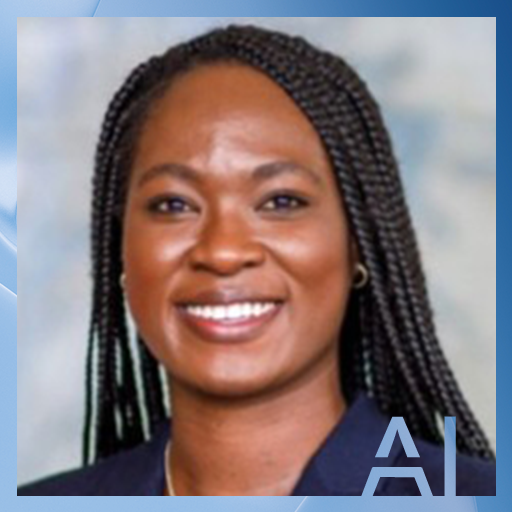
 Stephanie Ifayemi, Senior Managing Director of Policy, Partnership on AI
Stephanie Ifayemi, Senior Managing Director of Policy, Partnership on AI Stephanie Ifayemi is the Senior Managing Director, Public Policy. Prior to joining PAI, she was the Head of Digital Standards Policy in the UK Government’s Department for Digital, Culture, Media and Sport (DCMS) where she led the government’s work on global digital technical standards including for AI and quantum technologies.
Stephanie was responsible for setting the UK’s AI standards objectives and determining the role of technical standards for the UK’s AI governance model. In 2021, she published the UK’s first AI standards objectives in the National AI strategy and in January 2022, she launched the UK’s AI Standards Hub, alongside the Alan Turing Institute. Her work on AI and quantum standards has been reflected across several UK strategies, including the National Cyber Strategy and UK’s Digital Strategy. Alongside setting policy on standards for AI governance/regulation, assurance, and interoperability, her work has focused on strengthening multi-stakeholder representation in global standardization and delivering the G7 framework for collaboration.
Internationally, she is a member of the OECD Network of Experts on AI, a representative in bodies such as ISO/IEC, CEN/CENELEC, ETSI and the UK’s ICT/1/1/2 quantum technology panel, a Schmidt Futures European International Strategy Fellow and a member of the World Economic Forum’s Defining and Building the Metaverse initiative. Prior to digital standards policy, Stephanie worked in international roles including Germany’s GIZ Delegation to the African Union in Addis Ababa.
Stephanie holds a Master of Public Policy from the University of Oxford where she was a Duke of Cambridge Scholar. She has a BA from The University of Warwick where she received a RARE Rising Stars Award for the UK’s top 10 Black students.
Senior Managing Director of Policy
Partnership on AI

 Gregory C. Allen, Director of the Wadhwani AI Center, Center for Strategic and International Studies (CSIS)
Gregory C. Allen, Director of the Wadhwani AI Center, Center for Strategic and International Studies (CSIS) Gregory C. Allen is the director of the Wadhwani AI Center at the Center for Strategic and International Studies (CSIS) where he leads a team of scholars researching AI policy, governance, diplomacy, geopolitics, and national security. Mr. Allen plays an important role in shaping the U.S. and allied AI policy agenda, including at major international fora such as the 2023 and 2024 G7 Summits and the AI Safety Summit series. His recent research focuses on AI and semiconductor export controls and U.S.-China AI competition. The Economist has described Mr. Allen’s work in this field as “very much at the center of the formulation of current U.S. policy,” and Semafor called him “the most-watched U.S. analyst on the subject.” Prior to joining CSIS, Allen was the director of strategy and policy at the Department of Defense (DOD) Joint Artificial Intelligence Center, where he oversaw the development and implementation of the DOD’s AI strategy. Before serving in the DOD, he was the head of market analysis and competitive strategy at Blue Origin and a corporate strategy consultant advising executives in the semiconductor, high-performance computing, robotics, and space/satellite industries. Mr. Allen holds a joint MPP/MBA degree from the Harvard Kennedy School of Government and the Harvard Business School.
Director of the Wadhwani AI Center
Center for Strategic and International Studies (CSIS)

 Tanya Das, Director of AI and Energy Technology Policy, Bipartisan Policy Center
Tanya Das, Director of AI and Energy Technology Policy, Bipartisan Policy Center Dr. Tanya Das is the Director of AI and Energy Technology Policy at the Bipartisan Policy Center where she leads research and policy development on AI and energy, lab-to-market initiatives, energy tax, and supply chains. Prior to her tenure at BPC, Dr. Das developed initiatives to bolster U.S. competitiveness in emerging technology areas as the Chief of Staff for the Office of Science at the U.S. Department of Energy. She played a key role in crafting R&D provisions in President Biden’s “Build Back Better” plan.
In Congress, Dr. Das negotiated and advanced legislation related to AI, grid modernization, energy storage, microelectronics, and commercialization, as a staffer on the House Committee on Science, Space, and Technology. She also contributed to advanced manufacturing and workforce development policy in the Office of Senator Chris Coons. Her work has been featured in NPR, Politico, Latitude Media, E&E News, Canary Media, RTO Insider, and Foreign Policy.
A Michigan native, Dr. Das earned her Ph.D. and M.S. degrees in Electrical and Computer Engineering from the University of California, Santa Barbara and her B.S. in Electrical and Computer Engineering from the University of Michigan, Ann Arbor.
Director of AI and Energy Technology Policy
Bipartisan Policy Center
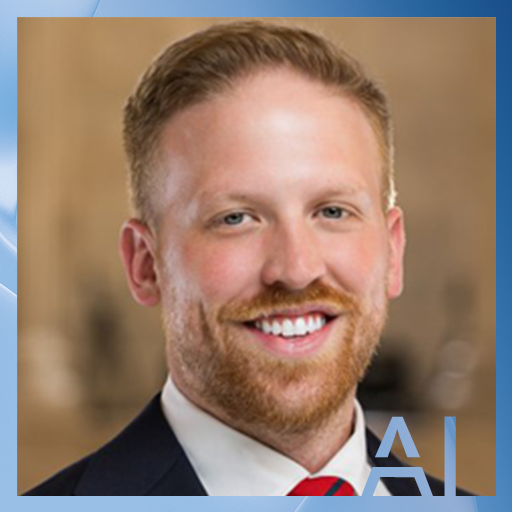
 Joe Putnik, Senior Congressional Innovation Fellow, TechCongress
Joe Putnik, Senior Congressional Innovation Fellow, TechCongress Joe Putnik is a technologist and entrepreneur dedicated to using technology and its many applications to uphold the principles of faith, freedom, and the dignity of every person. Guided by his Catholic faith and a deep love for his country, Joe is passionate about advancing policies rooted in subsidiarity, solidarity, and the common good. His mission is to harness technology to promote free markets, empower communities, and reinforce the foundations of American society.
Joe holds a master’s degree in Data Science from Northwestern University, specializing in artificial intelligence and machine learning. He received his undergraduate degree at the University of Colorado Boulder, where he studied finance and information management.
He has dedicated his career in the professional services space, first with larger management and technology consulting firms, and more recently running his own consulting business since 2019. He has served clients across nearly all sectors, including Fortune 500 firms, large-scale healthcare systems, private equity funds, small businesses, and nonprofits. His work focuses on automating workflows, using data to create value, and building exceptional products for the end-user.
During Tech Congress, Joe seeks to contribute to initiatives that use AI and data science to inform public policy and serve the American people. He is particularly focused on developing ethical AI frameworks, improving government efficiency through data-driven insights, and safeguarding civil liberties in the age of digital innovation. By ensuring technology serves the greater good, Joe hopes to help shape a future that restores a sense of American exceptionalism, uplifts individuals, and fortifies the nation.
Senior Congressional Innovation Fellow
TechCongress

 Dr. Peter Lovelock, Chief Innovation & Delivery Officer, Access Partnership
Dr. Peter Lovelock, Chief Innovation & Delivery Officer, Access Partnership Peter brings over 30 years’ experience in telecommunications, technology, digital commerce, and trade. He has significant experience as a strategic advisor to senior public and private sector stakeholders on digital transformation, digital economy, regulatory assessment, development and implementation of projects, due diligence, and market entry guidance in Asia.
Prior to its acquisition by Access Partnership, Peter Lovelock was the Director of TRPC, along with Professor John Ure. Peter and John established the Telecommunications Research Project (TRP) at the University of Hong Kong in 1993 and the Telecoms Infotechnology Forum (TIF) in 1996. Peter subsequently established the TRPC offices in Beijing (1999) and Singapore (2006) and expanded the academic collaborations in both locations, initially with the Chinese Academy of Social Sciences (CASS), and subsequently with Qinghua University and the National University of Singapore (NUS).
Between 1999 and 2004, Peter built and ran China’s leading IT research consultancy. Prior to that, he was a lead policy analyst at the UN in Geneva, where he was principal author on the World Telecommunications Development Report amongst others, including many of the ITU Secretary General’s speeches from this period.
Chief Innovation & Delivery Officer
Access Partnership

 Merve Hickok, President, Center for AI and Digital Policy
Merve Hickok, President, Center for AI and Digital Policy Merve Hickok is the President of Center for AI & Digital Policy (CAIDP). She is a globally renowned, award-winning AI policy, ethics and governance professional. CAIDP educates AI policy practitioners and advocates across 120+ countries, and advises international organizations. Merve previously testified at the US Congress, State of California, New York City and Detroit City. She provides AI policy expertise to OECD.AI, UNESCO, GPAI and the Council of Europe.
Merve Hickok is also the founder of AIethicist.org. Her work focuses on impact of AI systems on individuals and society – particularly the impact on fundamental rights, democratic values, and social justice. Merve has been recognized by a number of organizations – most recently with Lifetime Achievement Award – Women in AI of the Year – 2023 , Top AI Leaders in Retail (Ethics & Compliance) – 2024 , and as one of the 100 Brilliant Women in AI Ethics™ – 2021.
President
Center for AI and Digital Policy
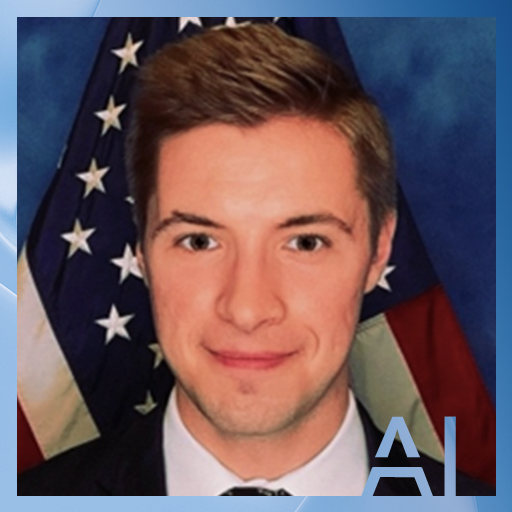
 Ryan Fedasiuk, Director, U.S. AI Governance, The Future Society
Ryan Fedasiuk, Director, U.S. AI Governance, The Future Society Ryan Fedasiuk is Director of U.S. AI Governance at The Future Society, where he leads the team’s work in Washington, D.C., on the safe and ethical development of AI. He is also an Adjunct Assistant Professor in the Security Studies Program at Georgetown University, where he teaches open-source intelligence methods.
From 2022-2024, Ryan was an Advisor for U.S.-China Bilateral Affairs at the U.S. Department of State, where he helped launch the Office of China Coordination and served as the U.S. government’s main point of contact with the Chinese Embassy in Washington. Before that, he was a Senior Research Analyst with the Center for Security and Emerging Technology (CSET), where he led open-source investigations into military applications of AI and U.S. security posture in East Asia.
A lead or coauthor of 30 reports and two books on China’s military modernization, influence operations, and efforts to acquire foreign technology, Ryan has also held research roles at the Center for Strategic and International Studies (CSIS), the Council on Foreign Relations (CFR), and the Arms Control Association. Ryan’s investigations into U.S. and Chinese technological power have been featured in reporting by The Washington Post, Wall Street Journal, and Associated Press; and his writing has appeared in POLITICO, Foreign Policy, Defense One, and War on the Rocks, among other outlets.
Ryan holds an M.A. in Security Studies from Georgetown University, where he also studied Mandarin. He received his B.A. in International Studies and Russian language from American University.
Director, U.S. AI Governance
The Future Society
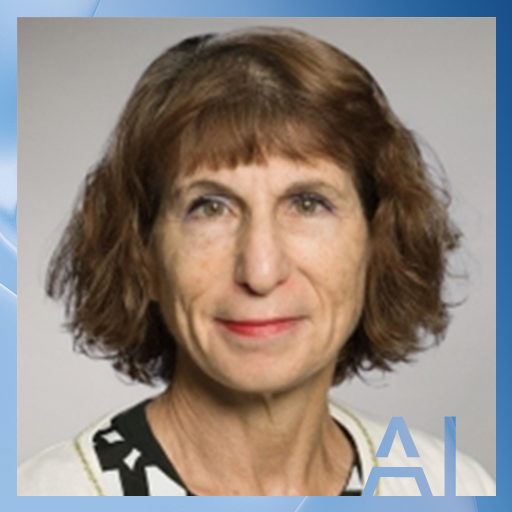
 Susan Ariel Aaronson, Research Professor of International Affairs, George Washington University
Susan Ariel Aaronson, Research Professor of International Affairs, George Washington University Susan Ariel Aaronson is Research Professor of International Affairs at George Washington University (GWU). Aaronson is also co-principal investigator with the NSF -NIST (National Science Foundation and (National Institute of Standards and Technology Institute for Trustworthy AI in Law & Society, TRAILS, where she leads research on data and AI governance. Aaronson was recently named one of GWU’s Public Interest Technology Scholars, where she works to encourage interdisciplinary research on technology.
Susan is also director of the Digital Trade and Data Governance Hub at GWU. The Hub was founded in 2019 and educates policy makers, the press and the public about data governance and data-driven change through conferences, webinars, study groups, primers and scholarly papers. It is the only organization in the world that maps the governance of public, proprietary and personal data at the domestic and international levels. The Hub’s research has been funded by foundations such as Ford and Minderoo. Susan currently directs projects on governing data for generative AI, ensuring that data is globally accurate, complete, and representative and on AI protectionism. Aaronson also frequently writes on XR sets. She regularly writes op-eds for Barron’s and Fortune, and was a commentator on economics for NPR’s Marketplace, All Things Considered and Morning Edition, and for NBC, CNN, the BBC and PBS.
Research Professor of International Affairs
George Washington University

 Hodan Omaar, Senior Policy Manager, Center for Data Innovation
Hodan Omaar, Senior Policy Manager, Center for Data Innovation Hodan Omaar is a senior policy manager at the Center for Data Innovation focusing on AI policy. Previously, she worked as a senior consultant on technology and risk management in London and as a crypto-economist in Berlin. She has an MA in Economics and Mathematics from the University of Edinburgh.
Senior Policy Manager
Center for Data Innovation

 Mike Swift, Chief Global Digital Risk Correspondent, MLex
Mike Swift, Chief Global Digital Risk Correspondent, MLex Mike Swift is an award-winning journalist who has been at the forefront of covering data privacy and other tech regulatory and litigation news for more than a decade. As the Chief Global Digital Risk Correspondent for MLex, in addition to reporting, he coordinates MLex’s worldwide coverage of data protection and AI legal and regulatory issues.
Formerly chief Internet reporter for the San Jose Mercury News and SiliconValley.com, Mike has covered Google, Meta, Apple, Microsoft, Twitter (now X Corp.) and other tech companies and has closely tracked technology and regulatory trends in Silicon Valley. He has wide ranging journalism expertise from the business of professional sports to computer-assisted reporting on US race and demographic trends. A former John S. Knight Fellow at Stanford University, he is a graduate of Colby College.
Chief Global Digital Risk Correspondent
MLex

 Jonathan Litchman, Co-founder and CEO, The Providence Group
Jonathan Litchman, Co-founder and CEO, The Providence Group Litchman is a national security veteran with experience as an intelligence officer, including serving on the National Warning Staff and on the staff of the National Intelligence Officer for Warning. He has also served as a staff member on the United States Senate Foreign Relations Committee. He was a senior vice president at Science Applications International Corporation (SAIC), where he led efforts in software product development and integration, and consulted on information operations, strategic planning, and contingency planning for the intelligence community. He also led Edelman Public Relations’ Washington, D.C. cybersecurity and national security practice.
Co-founder and CEO
The Providence Group
Previous European edition
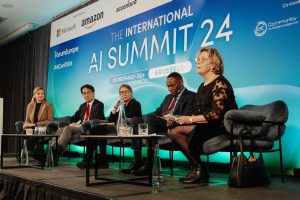
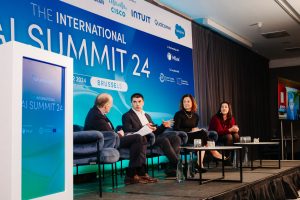
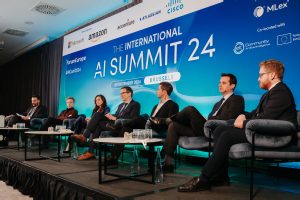
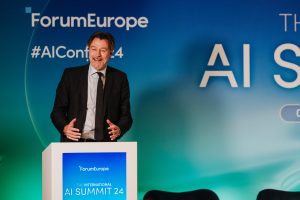
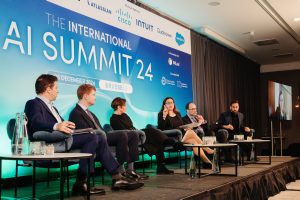
The International Artificial Intelligence Summit 2024 took place in Brussels on December 5th, 2024. It gathered prominent figures in AI policy, governance, and industry to discuss the latest advancements in AI.
This conference came at an opportune time, following the UN Summit for the Future, the union of GPAI with AIGO, and amidst the ongoing Hiroshima Process. It also coincided with the emergence of the EU AI Office and took place just ahead of the French AI Summit, making it an ideal moment for the global AI governance community to take stock of developments and examine how these various initiatives interact, reinforce each other, and contribute to forming a cohesive AI governance ecosystem.
*** TIMES ARE IN EDT ***
U.S. Congressman Jay Obernolte proudly represents California’s 23rd District in the U.S. House of Representatives. A video game developer and business owner, Rep. Obernolte is dedicated to ensuring the High Desert and Inland Empire have a strong voice fighting for their interests in Congress.
Rep. Obernolte proudly serves on the House Committee on Energy and Commerce where he is a member of the Subcommittee on Communications and Technology; the Subcommittee on Health; and the Subcommittee on Commerce, Manufacturing, and Trade. He also serves on the House Budget Committee and House Committee on Science, Space, and Technology as the Chairman of the Subcommittee on Research and Technology. He is currently the only serving member of Congress with a graduate-level degree in AI.
Previously, Rep. Obernolte served as a member of the California State Legislature representing the state’s 33rd Assembly District and as Mayor of the City of Big Bear Lake. He has also served on the boards of the Big Bear Lake Fire Protection District, the Mojave Desert and Mountain Integrated Waste Authority, the Mountain Regional Transit Authority, the League of California Cities Desert-Mountain Division, and the Big Bear City Airport District. In these positions he worked across partisan lines to pass legislation helping California’s hardworking families by lowering taxes, stopping government encroachment into privacy and personal liberties, and upholding law and order. He has also been a strong advocate for local veterans, defending funding for the Barstow Veterans Home and helping ensure California veterans receive the care and respect their service has earned.
Rep. Obernolte lives in Big Bear Lake with his wife, Heather. They have two sons, Hale and Troy. In addition to owning a videogame development studio, Rep. Obernolte is a certified flight instructor and a teacher of martial arts. He holds a B.S. in Engineering and Applied Science from the California Institute of Technology (Caltech), an M.S. in Artificial Intelligence from the University of California, Los Angeles (UCLA), and a Doctorate in Public Administration from California Baptist University (CBU).
Despite numerous AI-related bills being considered by Congress these past years, there are currently no comprehensive federal legislation or regulations in the U.S. that govern the development or use of AI technologies. In this context, U.S. states have stepped in to regulate AI through broad legislation or targeted policies for specific applications, creating a complex and evolving patchwork of laws that businesses and consumers must navigate. To what extent can this fragmented approach drive or hinder innovation? What can alleviate uncertainty for businesses, including SMBs and consumers? How will these diverse state laws inform and influence federal action? Can bipartisan consensus on AI-related issues be found in Congress to enact a comprehensive federal AI law that unifies a U.S. approach to AI governance, innovation, and adoption, positioning the country to lead confidently at home and on the global stage?
Key topics for discussion:
Delegate Michelle Lopes Maldonado represents Virginia’s 20th House District in Northern Virginia. She serves as Chair of the Affordable Housing Policy Committee for the House Democratic Caucus as well as Chair for the Judicial Subcommittee of the Courts of Justice and the Insurance and Financial Institutions Subcommittee for Labor and Commerce. The Delegate also is a member of the Privileges & Elections and Communications and Technology & Innovation Committees.
As a former technology lawyer and tech leader, Delegate Maldonado is Founding Chair of the General Assembly’s Technology & Innovation Caucus and a member of the NCSL national Task Force on Artificial Intelligence, Cybersecurity & Privacy. She also sits on the Joint Commission on Science and Technology (JCOTS) and its Subcommittees on AI and Blockchain, as well as the Southern Regional Education Board (SREB) Commission on AI In Education. Delegate Maldonado’s additional active Commission membership includes the Health Insurance Reform Commission (HIRC).
Among Delegate Maldonado’s signature legislation are Virginia’s first Online Child Data Privacy Act, the Baby Food Protection Act, enabling legislation for expedited prior authorizations for medical procedures, the establishment of annual medicare gap healthcare enrollment windows, and mandatory disclosures by prescribers of opioid prescription drugs, as well as four laws regarding the protection of elders and vulnerable adults against financial exploitation, renter protection, and protection of family members of domestic violence.
In her non-elected capacity, Delegate Maldonado has deep experience in strategic partnerships and business development, along with technology, and workforce development. As a result of her work, she has been recognized as “Woman of The Year,” “Top Corporate Leader,” among the “12 Powerful Women in the Mindfulness Movement,” a “2024 Impact Maker” by Virginia Magazine, and was inducted as an honorary member into the Golden Key International Honor Society. Delegate Maldonado’s work has been featured in the DQ Institute in association with the World Economic Forum, United Nations Global Engagement Summit, the Mindful Leader Summit, Huff Post, and Thrive Global. She is a proud graduate of Barnard College at Columbia University and The George Washington University School of Law. She and her family live in Northern Virginia.
Giovanni is a successful small businessman and proven job creator. He owns a small investing firm that specializes in investing in other small businesses, many based here in Texas. He sees how burdensome government regulations, high taxes and frivolous lawsuits hurt our economy and kill jobs. He wants to get government out of the way to allow entrepreneurs to grow their businesses and create jobs.
Prior to owning his own company, Giovanni was a Senior Vice President at an investment firm where he managed the loan and equity portfolios of various American businesses. Before that Giovanni held various positions at computer engineering companies primarily focused on semiconductor design and Internet products.
Giovanni is a grassroots fighter for conservative government. Giovanni has spent his time helping Republicans defeat Democrats across the country, volunteering on behalf of Republican candidates in key races in Texas and other states. Locally he led successful campaigns against property tax increases.
Giovanni is always on the front lines fighting for conservative solutions and accountable government.
Giovanni has been married for 21 years to his wife Elisa and has three daughters who attend local public schools. They are active in their church and community, co-founding the Southlake Lions Club and supporting dozens of other local organizations. Giovanni has a BS in Physics and an MBA in finance from Santa Clara University.
In the Texas House, Giovanni currently serves on several important committees with the goal to effectively represent the residents of House District 98. Giovanni is active in the community with pro-life, business development and other charitable groups.
Sen. Kirk A. Cullimore was elected to the Utah Senate in 2018 and represents District 19, the southeast part of Salt Lake County and sections of northeast Utah County. He currently serves as the majority leader in the majority caucus.
Sen. Cullimore received an associate’s degree in music from Utah Valley University. He then served a two-year mission for the Church of Jesus Christ of Latter-day Saints in the Philippines. After returning, he continued his education and received a bachelor’s degree in music from Brigham Young University. He subsequently taught music for six years and managed a music teaching studio. Sen. Cullimore then went on to pursue a law degree at the University of Oklahoma and began his law career in Oklahoma primarily in Federal Indian Law. He moved back to Utah and runs his own law practice focusing on general business representation, land use, water development and technology issues.
In his spare time, Sen. Cullimore volunteers as chairman of the board for the Intermountain Suzuki String Institute, and is a board member for the Suzuki Association of America. He is also on the board for the Salt Lake Regional Medical Center, a member of the Utah Valley University Alumni Association and formerly co-chaired the Brookwood Elementary School Community Council and served as the government affairs chair for the Utah Apartment Association. Additionally, he enjoys being an accompanist for an elementary school choir.
Sen. Cullimore and his wife Heather live in Sandy, Utah, with their six children. They stay busy attending their kids’ activities including violin, cello, dance and soccer.
Mike Swift is an award-winning journalist who has been at the forefront of covering data privacy and other tech regulatory and litigation news for more than a decade. As the Chief Global Digital Risk Correspondent for MLex, in addition to reporting, he coordinates MLex’s worldwide coverage of data protection and AI legal and regulatory issues.
Formerly chief Internet reporter for the San Jose Mercury News and SiliconValley.com, Mike has covered Google, Meta, Apple, Microsoft, Twitter (now X Corp.) and other tech companies and has closely tracked technology and regulatory trends in Silicon Valley. He has wide ranging journalism expertise from the business of professional sports to computer-assisted reporting on US race and demographic trends. A former John S. Knight Fellow at Stanford University, he is a graduate of Colby College.
The United States stands at the cusp of a transformative AI revolution but realizing the technology’s full potential hinges on a robust infrastructure. With AI compute demand far outpacing supply, a strategic approach is essential to maximize access, encourage innovation, and solidify America’s leadership in AI. This session will explore how the United States addresses the massive infrastructure requirements for current and next-generation AI developments, discussing the investments needed to expand AI compute capacity, strengthen digital infrastructure, and ensure a stable and affordable energy supply. It will analyze strategies for expanding domestic AI compute infrastructure – including initiatives like the $500 billion Stargate project for AI data centers – by examining approaches to building secure, high-performance computing environments that can handle intensive AI workloads while ensuring equitable access for startups, researchers, and businesses of all sizes.
Key topics of discussion to explore:
Tess DeBlanc-Knowles serves as Special Assistant to the Director for Artificial Intelligence at the National Science Foundation (NSF), where she oversees NSF’s implementation of the Executive Order on the Safe, Secure, and Trustworthy Development and Use of Artificial Intelligence and works across the agency to coordinate AI initiatives and AI policy. In addition, she holds the position of Strategic Advisor for Technology Policy and Strategy within NSF’s Directorate for Technology, Innovation and Partnerships.
Prior to stepping into these roles, Tess spent two years as a senior policy advisor within the White House Office of Science and Technology Policy (OSTP). While at OSTP, she led policy efforts focused on strengthening the nation’s AI innovation ecosystem and co-chaired the National AI Research Resource Task Force. She also led the development of the National Strategy to Advance Privacy-Preserving Data Sharing and Analytics and the National AI Research and Development Strategic Plan: 2023 Update.
Before joining NSF, Tess served as Director for Research and Analysis at the National Security Commission on Artificial Intelligence (NSCAI). She also spent time as Chief of Staff at the Atlantic Council, at U.S. Special Operations Command, and in the Office of the Deputy Assistant Secretary of Defense for Countering Weapons of Mass Destruction.
Neelesh Nerurkar is the Acting Principal Deputy Director & Executive Director and the Director of Infrastructure Policy. Leading a team of experts, he advises the Secretary of Energy, the White House, and Congress on policies to drive investment in affordable, reliable, and secure energy solutions.
Prior to joining OP, Nerurkar was Vice President at Clearview Energy Partners, where he advised institutional investors and corporate strategists on energy market and policy issues. He previously served as Deputy Assistant Secretary at DOE’s Office of Fossil Energy and as senior energy policy advisor at the White House National Security Council and National Economic Council, Department of State, and Congressional Research Service. He has also served as an energy economist in government and industry.
Nerurkar holds a B.A. from the University of Oklahoma and an M.A. from the Johns Hopkins University School of Advanced International Studies.
Dr. Tanya Das is the Director of AI and Energy Technology Policy at the Bipartisan Policy Center where she leads research and policy development on AI and energy, lab-to-market initiatives, energy tax, and supply chains. Prior to her tenure at BPC, Dr. Das developed initiatives to bolster U.S. competitiveness in emerging technology areas as the Chief of Staff for the Office of Science at the U.S. Department of Energy. She played a key role in crafting R&D provisions in President Biden’s “Build Back Better” plan.
In Congress, Dr. Das negotiated and advanced legislation related to AI, grid modernization, energy storage, microelectronics, and commercialization, as a staffer on the House Committee on Science, Space, and Technology. She also contributed to advanced manufacturing and workforce development policy in the Office of Senator Chris Coons. Her work has been featured in NPR, Politico, Latitude Media, E&E News, Canary Media, RTO Insider, and Foreign Policy.
A Michigan native, Dr. Das earned her Ph.D. and M.S. degrees in Electrical and Computer Engineering from the University of California, Santa Barbara and her B.S. in Electrical and Computer Engineering from the University of Michigan, Ann Arbor.
Peter brings over 30 years’ experience in telecommunications, technology, digital commerce, and trade. He has significant experience as a strategic advisor to senior public and private sector stakeholders on digital transformation, digital economy, regulatory assessment, development and implementation of projects, due diligence, and market entry guidance in Asia.
Prior to its acquisition by Access Partnership, Peter Lovelock was the Director of TRPC, along with Professor John Ure. Peter and John established the Telecommunications Research Project (TRP) at the University of Hong Kong in 1993 and the Telecoms Infotechnology Forum (TIF) in 1996. Peter subsequently established the TRPC offices in Beijing (1999) and Singapore (2006) and expanded the academic collaborations in both locations, initially with the Chinese Academy of Social Sciences (CASS), and subsequently with Qinghua University and the National University of Singapore (NUS).
Between 1999 and 2004, Peter built and ran China’s leading IT research consultancy. Prior to that, he was a lead policy analyst at the UN in Geneva, where he was principal author on the World Telecommunications Development Report amongst others, including many of the ITU Secretary General’s speeches from this period.
Hodan Omaar is a senior policy manager at the Center for Data Innovation focusing on AI policy. Previously, she worked as a senior consultant on technology and risk management in London and as a crypto-economist in Berlin. She has an MA in Economics and Mathematics from the University of Edinburgh.
Melissa Holyoak was sworn in March 25, 2024 as a Commissioner of the Federal Trade Commission.
Holyoak brings extensive experience as a litigator and leader. Most recently, she served as Solicitor General with the Utah Attorney General’s Office where she oversaw the civil appeals, criminal appeals, constitutional defense and special litigation, and antitrust and data privacy divisions. She also managed multistate matters including those involving consumer protection and antitrust claims.
Before taking on that role, she served as president and general counsel of Hamilton Lincoln Law Institute, a Washington, D.C.-based public interest law firm and in other public interest attorney positions with the Competitive Enterprise Institute and the Center for Class Action Fairness. Holyoak represented class members challenging unfair class actions and consumers fighting regulatory abuse in federal district courts and appellate courts across the country.
Holyoak has argued in the Fifth, Seventh, Eighth, Ninth, Tenth and D.C. Circuits. She is a former prosecutor and attorney with O’Melveny & Myers LLP. She graduated from the University of Utah S.J. Quinney College of Law in 2003 as a member of the Order of the Coif and the Law Review. Holyoak is a member of the bars of Utah, D.C., and Missouri (inactive). Her husband Dr. Joshua Holyoak is a urologist and together they have four beautiful children.
As AI systems evolve rapidly and regulatory landscapes shift, organizations need to remain proactive when it comes to implementing strategies to enable innovation to flourish. This session will convene industry leaders, public sector agencies, and governance experts to explore how AI is being deployed responsibly and at scale across various sectors and what more can be done to unlock the transformative potential of AI for economic growth and societal benefit. Through real-world case studies and expert insights, the discussion will highlight key success factors, challenges, and strategies for AI development and adoption considering evolving regulatory and market dynamics.
Key topics of discussion to explore:
Sterling is a research scientist with strong experience in human disease, molecular pathology, Big Data analytics, and computer programming. His projects have ranged from developing human diagnostics to developing financial algorithms for equities markets. Sterling has managed several laboratories and research teams including serving as a Director. He has direct experience with small businesses and startups, non-profit research institutions and academic research laboratories; including acquiring start-up funds and peer-reviewed grant submission.
Specialties: Bioinformatics, genomics, biomarker discovery, proteomics, structural informatics, biomathematics, molecular pathology, anatomical pathology, high-performance computing, and quantitative finance.
Elise Houlik is Chief Privacy Officer at Intuit. In this role, she drives Intuit’s data stewardship vision and advises on complex privacy and interrelated regulatory issues. Her team is deeply engaged with the business on all matters related to product development, data governance, and information security. Elise joined Intuit in August 2022 and is based in New York.
Prior to joining Intuit, Elise served as Mastercard’s SVP, Assistant General Counsel – Privacy & Data Protection, where she led privacy work for the North American and Latin American & Caribbean markets, and for several global divisions including open banking, small / medium business and B2B platforms, digital payments and partnerships, start-ups, cryptocurrency / blockchain, marketing and communications, human resources, operations & technology, and corporate security. She formerly held the role of Associate General Counsel at Fannie Mae in Washington, DC, acting as the company’s Lead Privacy & Cybersecurity counsel for several years.
Elise is admitted in DC, MD, and NY (In House), and is a Certified Information Privacy Professional (CIPP-US). She holds a Bachelor of Arts degree from Johns Hopkins University and a Juris Doctor from the George Washington University Law School.
Accelerating AI adoption, governance, policy, IT infrastructure, data structures, risk management, workforce talent acquisition, training, and inspiration to support innovative AI business solutions and research.
Seasoned graduate-level adjunct professor for artificial intelligence and machine learning governance and platforms, business intelligence and analytics, advanced statistics, complex algorithms and data structures, and advanced database development.

Joe Putnik is a technologist and entrepreneur dedicated to using technology and its many applications to uphold the principles of faith, freedom, and the dignity of every person. Guided by his Catholic faith and a deep love for his country, Joe is passionate about advancing policies rooted in subsidiarity, solidarity, and the common good. His mission is to harness technology to promote free markets, empower communities, and reinforce the foundations of American society.
Joe holds a master’s degree in Data Science from Northwestern University, specializing in artificial intelligence and machine learning. He received his undergraduate degree at the University of Colorado Boulder, where he studied finance and information management.
He has dedicated his career in the professional services space, first with larger management and technology consulting firms, and more recently running his own consulting business since 2019. He has served clients across nearly all sectors, including Fortune 500 firms, large-scale healthcare systems, private equity funds, small businesses, and nonprofits. His work focuses on automating workflows, using data to create value, and building exceptional products for the end-user.
During Tech Congress, Joe seeks to contribute to initiatives that use AI and data science to inform public policy and serve the American people. He is particularly focused on developing ethical AI frameworks, improving government efficiency through data-driven insights, and safeguarding civil liberties in the age of digital innovation. By ensuring technology serves the greater good, Joe hopes to help shape a future that restores a sense of American exceptionalism, uplifts individuals, and fortifies the nation.

John Lynn co-leads Kirkland’s Technology & IP Transactions Practice and heads the practice on the West Coast out of the Bay Area office and in Texas out of the Austin office. John is on the forefront of understanding the complex relationships between intellectual property and technology, on the one hand, and business matters and risk, on the other hand.
John works on a wide variety of matters in which technology, data protection, and artificial intelligence play a key role, including private equity matters and other mergers, acquisitions, and divestitures (particularly in the software and high technology fields); financings, secured lending matters, and liability management transactions; and bankruptcies and restructurings. In addition, John assists clients in connection with joint ventures and strategic alliances; intellectual property and technology transfers, licenses, and development agreements; royalty buy-outs; data transfer and license arrangements; and other commercial contracts (such as supply, distribution, and service agreements).
Artificial intelligence is rapidly transforming the way we live, promising increased productivity, innovative solutions to every-day challenges, and enhanced customer experiences. Its benefits are manifold, providing public and private organizations with valuable insights to improve products and services and to address socio-economic issues, but a lack of trust from individuals, the patchwork of regulations and concerns around the impacts on the workforce have affected the public’s acceptance of the technology. This session will discuss the critical intersection of AI’s transformative potential in every aspect of our lives and of the crucial need for public trust and acceptance to build a future where AI benefits all of society.
Key topics of discussion to explore:
Stephen N. Miller is the 7th Chief Technology Officer at the Office of the Chief Technology Officer (OCTO). Director Miller has more than two decades of technology organization experience, including 17 years in District Government supporting and leading application development and operations within OCTO. Director Miller recently served as Deputy CTO for OCTO’s Digital Services Department, where he led the teams responsible for how the District Government plans, designs, develops and continuously improves upon technical solutions for the residents, businesses, visitors, and staff of the District Government. Director Miller’s teams oversee the implementation, operation and enhancement of enterprise platforms supporting District-wide collaboration, data management, process improvement, solution design, quality assurance, technical implementation, and organizational change management.
Stephanie Ifayemi is the Senior Managing Director, Public Policy. Prior to joining PAI, she was the Head of Digital Standards Policy in the UK Government’s Department for Digital, Culture, Media and Sport (DCMS) where she led the government’s work on global digital technical standards including for AI and quantum technologies.
Stephanie was responsible for setting the UK’s AI standards objectives and determining the role of technical standards for the UK’s AI governance model. In 2021, she published the UK’s first AI standards objectives in the National AI strategy and in January 2022, she launched the UK’s AI Standards Hub, alongside the Alan Turing Institute. Her work on AI and quantum standards has been reflected across several UK strategies, including the National Cyber Strategy and UK’s Digital Strategy. Alongside setting policy on standards for AI governance/regulation, assurance, and interoperability, her work has focused on strengthening multi-stakeholder representation in global standardization and delivering the G7 framework for collaboration.
Internationally, she is a member of the OECD Network of Experts on AI, a representative in bodies such as ISO/IEC, CEN/CENELEC, ETSI and the UK’s ICT/1/1/2 quantum technology panel, a Schmidt Futures European International Strategy Fellow and a member of the World Economic Forum’s Defining and Building the Metaverse initiative. Prior to digital standards policy, Stephanie worked in international roles including Germany’s GIZ Delegation to the African Union in Addis Ababa.
Stephanie holds a Master of Public Policy from the University of Oxford where she was a Duke of Cambridge Scholar. She has a BA from The University of Warwick where she received a RARE Rising Stars Award for the UK’s top 10 Black students.
Roman Jankowski was appointed as the Chief Privacy Officer and Chief Freedom of Information Act (FOIA) Officer for the Department of Homeland Security (DHS) on January 20, 2025. In this capacity, he leads efforts to uphold privacy protections, promote transparency, and ensure compliance with federal privacy and FOIA laws across the department.
Prior to this role, Mr. Jankowski served as Senior Investigative Counsel at the Heritage Foundation’s Oversight Project, where he focused on advancing transparency and accountability across federal, state, and local government operations.
Mr. Jankowski brings a wealth of experience from his prior tenure at DHS, where he held key positions from 2013 to 2021. His roles included Chief of Staff of the Privacy Office, Senior Advisor, Privacy Office Advisor, and Disclosure Team Lead at the Federal Emergency Management Agency (FEMA). During his time at DHS, he played a pivotal role in developing and implementing policies to safeguard privacy and manage disclosures effectively.
In addition to his DHS experience, Mr. Jankowski has contributed to federal policy development at the Department of Defense (DoD), where he worked on critical DoD issuances and DoD management instructions and directives.
Mr. Jankowski earned his Juris Doctor (J.D.) from the University of the District of Columbia David A. Clarke School of Law and holds a Bachelor of Arts (B.A.) degree from the University at Buffalo. His extensive public service and commitment to transparency underscore his dedication to protecting individual privacy and promoting government accountability.
Litchman is a national security veteran with experience as an intelligence officer, including serving on the National Warning Staff and on the staff of the National Intelligence Officer for Warning. He has also served as a staff member on the United States Senate Foreign Relations Committee. He was a senior vice president at Science Applications International Corporation (SAIC), where he led efforts in software product development and integration, and consulted on information operations, strategic planning, and contingency planning for the intelligence community. He also led Edelman Public Relations’ Washington, D.C. cybersecurity and national security practice.
The race for global AI leadership has intensified as AI continues to reshape economies and national security landscapes. U.S. export control policies, designed to limit the diffusion of advanced AI technologies to strategic competitors like China and Russia, are meant to safeguard national security but may also pose challenges to U.S. competitiveness, innovation, and to its cooperation with allies. How are geopolitics, national security concerns and economic competitiveness driving policy decisions and shaping the global AI landscape?
Key topics for discussion:

Brando Benifei is an Italian MEP serving his third term in the European parliament. During the previous mandate he was co-Rapporteur for the Artificial Intelligence Act and thanks to this work in March 2024 he won the prize for the Best MEP of the Mandate assigned by The Parliament Magazine. Now he is Coordinator in the Committee on International Trade for the Socialists and Democrats Group and Chair of the European Parliament’s D-US delegation. He is member of the Committee on Constitutional Affairs and he works also as substitute member on the EU internal market and consumer protection and on legal affairs, always following closely digital issues.

Gregory C. Allen is the director of the Wadhwani AI Center at the Center for Strategic and International Studies (CSIS) where he leads a team of scholars researching AI policy, governance, diplomacy, geopolitics, and national security. Mr. Allen plays an important role in shaping the U.S. and allied AI policy agenda, including at major international fora such as the 2023 and 2024 G7 Summits and the AI Safety Summit series. His recent research focuses on AI and semiconductor export controls and U.S.-China AI competition. The Economist has described Mr. Allen’s work in this field as “very much at the center of the formulation of current U.S. policy,” and Semafor called him “the most-watched U.S. analyst on the subject.” Prior to joining CSIS, Allen was the director of strategy and policy at the Department of Defense (DOD) Joint Artificial Intelligence Center, where he oversaw the development and implementation of the DOD’s AI strategy. Before serving in the DOD, he was the head of market analysis and competitive strategy at Blue Origin and a corporate strategy consultant advising executives in the semiconductor, high-performance computing, robotics, and space/satellite industries. Mr. Allen holds a joint MPP/MBA degree from the Harvard Kennedy School of Government and the Harvard Business School.
Susan Ariel Aaronson is Research Professor of International Affairs at George Washington University (GWU). Aaronson is also co-principal investigator with the NSF -NIST (National Science Foundation and (National Institute of Standards and Technology Institute for Trustworthy AI in Law & Society, TRAILS, where she leads research on data and AI governance. Aaronson was recently named one of GWU’s Public Interest Technology Scholars, where she works to encourage interdisciplinary research on technology.
Susan is also director of the Digital Trade and Data Governance Hub at GWU. The Hub was founded in 2019 and educates policy makers, the press and the public about data governance and data-driven change through conferences, webinars, study groups, primers and scholarly papers. It is the only organization in the world that maps the governance of public, proprietary and personal data at the domestic and international levels. The Hub’s research has been funded by foundations such as Ford and Minderoo. Susan currently directs projects on governing data for generative AI, ensuring that data is globally accurate, complete, and representative and on AI protectionism. Aaronson also frequently writes on XR sets. She regularly writes op-eds for Barron’s and Fortune, and was a commentator on economics for NPR’s Marketplace, All Things Considered and Morning Edition, and for NBC, CNN, the BBC and PBS.
Ryan Fedasiuk is Director of U.S. AI Governance at The Future Society, where he leads the team’s work in Washington, D.C., on the safe and ethical development of AI. He is also an Adjunct Assistant Professor in the Security Studies Program at Georgetown University, where he teaches open-source intelligence methods.
From 2022-2024, Ryan was an Advisor for U.S.-China Bilateral Affairs at the U.S. Department of State, where he helped launch the Office of China Coordination and served as the U.S. government’s main point of contact with the Chinese Embassy in Washington. Before that, he was a Senior Research Analyst with the Center for Security and Emerging Technology (CSET), where he led open-source investigations into military applications of AI and U.S. security posture in East Asia.
A lead or coauthor of 30 reports and two books on China’s military modernization, influence operations, and efforts to acquire foreign technology, Ryan has also held research roles at the Center for Strategic and International Studies (CSIS), the Council on Foreign Relations (CFR), and the Arms Control Association. Ryan’s investigations into U.S. and Chinese technological power have been featured in reporting by The Washington Post, Wall Street Journal, and Associated Press; and his writing has appeared in POLITICO, Foreign Policy, Defense One, and War on the Rocks, among other outlets.
Ryan holds an M.A. in Security Studies from Georgetown University, where he also studied Mandarin. He received his B.A. in International Studies and Russian language from American University.
Adam Thierer is a senior fellow for the Technology & Innovation team. He works to make the world safe for innovators and entrepreneurs by pushing for a policy vision that is rooted in the idea of “permissionless innovation.”
Prior to R Street, Adam spent 12 years as a senior fellow at the Mercatus Center at George Mason University. Before the Mercatus Center, he served as the president of the Progress and Freedom Foundation. Adam has also worked for the Adam Smith Institute, the Heritage Foundation and the Cato Institute.
Adam has published 10 books on a wide range of topics, including online child safety, internet governance, intellectual property, telecommunications policy, media regulation and federalism.
In 2008, Adam received the Family Online Safety Institute’s “Award for Outstanding Achievement.”
Adam has a master’s degree in international business management and a bachelor’s degree with a double major in political science and journalism.
Adam lives in Falls Church, Virginia with his wife, kids and two cats.
As AI technologies continue to transform societies worldwide, now is a crucial time for the US to strategically position itself within the evolving global AI governance ecosystem. This session will examine how the US can balance technological leadership with collaborative approaches that build trust, foster interoperability, and ensure inclusive development of AI governance frameworks that benefit humanity globally. It will explore the evolving global AI landscape and how the United States can effectively inform and shape global AI cooperation.
Key topics for discussion:
Ambassador Karen Kornbluh is a Visiting Fellow at the Center for Democracy and Technology and Senior Advisor for Emerging Technology at the Milken Institute. She served until January as Principal Deputy White House Chief Technology Officer and Director of the National Artificial Intelligence Office.
Previously, she served as Ambassador to the Organization for Economic Cooperation and Development under President Barack Obama, spearheading the first global internet policymaking principles and launching the OECD Gender Initiative. Previously she served as a senior official at the Treasury Department and Federal Communications Commission.
She started her career in the private sector as an Economist at forecasting firm Townsend-Greenspan and provided strategic consulting to Fortune 100 companies at Telesis. She served as Executive Vice President at Nielsen, the global data firm.
Ambassador Kornbluh chaired the boards of both the Open Technology Fund and Radio Free Europe and ran programs on technology and society at the Council on Foreign Relations, New America, and the German Marshall Fund of the U.S.
She is a Washingtonian “Tech Titan,” and was the subject of a New York Times profile titled “Fighting for Economic Equality.“ Her articles have appeared in outlets including Foreign Affairs, The New York Times, Washington Post, Atlantic Monthly, and Harvard Journal of Law and Technology. She is a member of the Council on Foreign Relations and serves on the Maryland Economic Commission.
Chandler C. Morse serves as Vice President of Corporate Affairs for Workday, a leading provider of enterprise cloud services delivering financial management, human capital management, and analytics applications. Mr. Morse stood up the Washington, DC office for the company in late 2018 and was elevated to lead Workday’s U.S. and Global policy teams as well as Sustainability practice and reporting.
Workday engages on policy issues related to workforce development, privacy and data flows, sustainability, cybersecurity, and inclusion. In recent years, Workday has been focused on expanding and supporting the growing momentum behind a skill-based approach to talent. On Capitol Hill, Workday has been working to modernize federal labor market data to meet the challenges in the coming age of artificial intelligence (AI). In addition, Workday’s policy team is increasingly playing a leadership role around the world with respect to the rapidly evolving AI policy landscape. Workday has been front and center in several recent milestones related to artificial intelligence policy; including pushing for workability in the EU AI Act and being an early champion at the federal level for the NIST AI Risk Management Framework.
Prior to joining Workday, Mr. Morse spent more than a decade on Capitol Hill, working for Senator Jeff Flake (R-AZ) for more than thirteen years. He served as the Chief of Staff and was the Senator’s legislative director prior to that. He joined Congressman Flake’s staff after serving as a regulatory policy analyst for the National Association of Home Builders. Mr. Morse graduated from The Ohio State University with a B.S. in environmental policy and from the University of Maine with an M.S. in environmental science.

Head of the Competitiveness, Innovation and Technology Section of the Department of Economic Development of the Organization of American States (OAS), in charge of the OAS Competitiveness Program and of the Technical Secretariat of the Inter-American Competitiveness Network (RIAC), additionally coordinates technical support to the Meeting of Ministers and High Authorities of Science and Technology and the Inter-American Commission on Science and Technology (COMCYT) of the OAS. Lawyer graduated from the University of Guadalajara, Mexico, with a Master’s Degree in Intellectual Property Law and Patents from the George Washington University School of Law. He was an adjunct professor at the Georgetown University Law Center in Washington D.C. in international trade issues from 2008 to 2019, he has studies in International Trade from the University Institute of European Studies and the International Labor Organization (ILO) in Torino, Italy.

Merve Hickok is the President of Center for AI & Digital Policy (CAIDP). She is a globally renowned, award-winning AI policy, ethics and governance professional. CAIDP educates AI policy practitioners and advocates across 120+ countries, and advises international organizations. Merve previously testified at the US Congress, State of California, New York City and Detroit City. She provides AI policy expertise to OECD.AI, UNESCO, GPAI and the Council of Europe.
Merve Hickok is also the founder of AIethicist.org. Her work focuses on impact of AI systems on individuals and society – particularly the impact on fundamental rights, democratic values, and social justice. Merve has been recognized by a number of organizations – most recently with Lifetime Achievement Award – Women in AI of the Year – 2023 , Top AI Leaders in Retail (Ethics & Compliance) – 2024 , and as one of the 100 Brilliant Women in AI Ethics™ – 2021.
Mike Swift is an award-winning journalist who has been at the forefront of covering data privacy and other tech regulatory and litigation news for more than a decade. As the Chief Global Digital Risk Correspondent for MLex, in addition to reporting, he coordinates MLex’s worldwide coverage of data protection and AI legal and regulatory issues.
Formerly chief Internet reporter for the San Jose Mercury News and SiliconValley.com, Mike has covered Google, Meta, Apple, Microsoft, Twitter (now X Corp.) and other tech companies and has closely tracked technology and regulatory trends in Silicon Valley. He has wide ranging journalism expertise from the business of professional sports to computer-assisted reporting on US race and demographic trends. A former John S. Knight Fellow at Stanford University, he is a graduate of Colby College.
U.S. Congressman Jay Obernolte proudly represents California’s 23rd District in the U.S. House of Representatives. A video game developer and business owner, Rep. Obernolte is dedicated to ensuring the High Desert and Inland Empire have a strong voice fighting for their interests in Congress.
Rep. Obernolte proudly serves on the House Committee on Energy and Commerce where he is a member of the Subcommittee on Communications and Technology; the Subcommittee on Health; and the Subcommittee on Commerce, Manufacturing, and Trade. He also serves on the House Budget Committee and House Committee on Science, Space, and Technology as the Chairman of the Subcommittee on Research and Technology. He is currently the only serving member of Congress with a graduate-level degree in AI.
Previously, Rep. Obernolte served as a member of the California State Legislature representing the state’s 33rd Assembly District and as Mayor of the City of Big Bear Lake. He has also served on the boards of the Big Bear Lake Fire Protection District, the Mojave Desert and Mountain Integrated Waste Authority, the Mountain Regional Transit Authority, the League of California Cities Desert-Mountain Division, and the Big Bear City Airport District. In these positions he worked across partisan lines to pass legislation helping California’s hardworking families by lowering taxes, stopping government encroachment into privacy and personal liberties, and upholding law and order. He has also been a strong advocate for local veterans, defending funding for the Barstow Veterans Home and helping ensure California veterans receive the care and respect their service has earned.
Rep. Obernolte lives in Big Bear Lake with his wife, Heather. They have two sons, Hale and Troy. In addition to owning a videogame development studio, Rep. Obernolte is a certified flight instructor and a teacher of martial arts. He holds a B.S. in Engineering and Applied Science from the California Institute of Technology (Caltech), an M.S. in Artificial Intelligence from the University of California, Los Angeles (UCLA), and a Doctorate in Public Administration from California Baptist University (CBU).
Despite numerous AI-related bills being considered by Congress these past years, there are currently no comprehensive federal legislation or regulations in the U.S. that govern the development or use of AI technologies. In this context, U.S. states have stepped in to regulate AI through broad legislation or targeted policies for specific applications, creating a complex and evolving patchwork of laws that businesses and consumers must navigate. To what extent can this fragmented approach drive or hinder innovation? What can alleviate uncertainty for businesses, including SMBs and consumers? How will these diverse state laws inform and influence federal action? Can bipartisan consensus on AI-related issues be found in Congress to enact a comprehensive federal AI law that unifies a U.S. approach to AI governance, innovation, and adoption, positioning the country to lead confidently at home and on the global stage?
Key topics for discussion:
Delegate Michelle Lopes Maldonado represents Virginia’s 20th House District in Northern Virginia. She serves as Chair of the Affordable Housing Policy Committee for the House Democratic Caucus as well as Chair for the Judicial Subcommittee of the Courts of Justice and the Insurance and Financial Institutions Subcommittee for Labor and Commerce. The Delegate also is a member of the Privileges & Elections and Communications and Technology & Innovation Committees.
As a former technology lawyer and tech leader, Delegate Maldonado is Founding Chair of the General Assembly’s Technology & Innovation Caucus and a member of the NCSL national Task Force on Artificial Intelligence, Cybersecurity & Privacy. She also sits on the Joint Commission on Science and Technology (JCOTS) and its Subcommittees on AI and Blockchain, as well as the Southern Regional Education Board (SREB) Commission on AI In Education. Delegate Maldonado’s additional active Commission membership includes the Health Insurance Reform Commission (HIRC).
Among Delegate Maldonado’s signature legislation are Virginia’s first Online Child Data Privacy Act, the Baby Food Protection Act, enabling legislation for expedited prior authorizations for medical procedures, the establishment of annual medicare gap healthcare enrollment windows, and mandatory disclosures by prescribers of opioid prescription drugs, as well as four laws regarding the protection of elders and vulnerable adults against financial exploitation, renter protection, and protection of family members of domestic violence.
In her non-elected capacity, Delegate Maldonado has deep experience in strategic partnerships and business development, along with technology, and workforce development. As a result of her work, she has been recognized as “Woman of The Year,” “Top Corporate Leader,” among the “12 Powerful Women in the Mindfulness Movement,” a “2024 Impact Maker” by Virginia Magazine, and was inducted as an honorary member into the Golden Key International Honor Society. Delegate Maldonado’s work has been featured in the DQ Institute in association with the World Economic Forum, United Nations Global Engagement Summit, the Mindful Leader Summit, Huff Post, and Thrive Global. She is a proud graduate of Barnard College at Columbia University and The George Washington University School of Law. She and her family live in Northern Virginia.
Giovanni is a successful small businessman and proven job creator. He owns a small investing firm that specializes in investing in other small businesses, many based here in Texas. He sees how burdensome government regulations, high taxes and frivolous lawsuits hurt our economy and kill jobs. He wants to get government out of the way to allow entrepreneurs to grow their businesses and create jobs.
Prior to owning his own company, Giovanni was a Senior Vice President at an investment firm where he managed the loan and equity portfolios of various American businesses. Before that Giovanni held various positions at computer engineering companies primarily focused on semiconductor design and Internet products.
Giovanni is a grassroots fighter for conservative government. Giovanni has spent his time helping Republicans defeat Democrats across the country, volunteering on behalf of Republican candidates in key races in Texas and other states. Locally he led successful campaigns against property tax increases.
Giovanni is always on the front lines fighting for conservative solutions and accountable government.
Giovanni has been married for 21 years to his wife Elisa and has three daughters who attend local public schools. They are active in their church and community, co-founding the Southlake Lions Club and supporting dozens of other local organizations. Giovanni has a BS in Physics and an MBA in finance from Santa Clara University.
In the Texas House, Giovanni currently serves on several important committees with the goal to effectively represent the residents of House District 98. Giovanni is active in the community with pro-life, business development and other charitable groups.
Sen. Kirk A. Cullimore was elected to the Utah Senate in 2018 and represents District 19, the southeast part of Salt Lake County and sections of northeast Utah County. He currently serves as the majority leader in the majority caucus.
Sen. Cullimore received an associate’s degree in music from Utah Valley University. He then served a two-year mission for the Church of Jesus Christ of Latter-day Saints in the Philippines. After returning, he continued his education and received a bachelor’s degree in music from Brigham Young University. He subsequently taught music for six years and managed a music teaching studio. Sen. Cullimore then went on to pursue a law degree at the University of Oklahoma and began his law career in Oklahoma primarily in Federal Indian Law. He moved back to Utah and runs his own law practice focusing on general business representation, land use, water development and technology issues.
In his spare time, Sen. Cullimore volunteers as chairman of the board for the Intermountain Suzuki String Institute, and is a board member for the Suzuki Association of America. He is also on the board for the Salt Lake Regional Medical Center, a member of the Utah Valley University Alumni Association and formerly co-chaired the Brookwood Elementary School Community Council and served as the government affairs chair for the Utah Apartment Association. Additionally, he enjoys being an accompanist for an elementary school choir.
Sen. Cullimore and his wife Heather live in Sandy, Utah, with their six children. They stay busy attending their kids’ activities including violin, cello, dance and soccer.
Mike Swift is an award-winning journalist who has been at the forefront of covering data privacy and other tech regulatory and litigation news for more than a decade. As the Chief Global Digital Risk Correspondent for MLex, in addition to reporting, he coordinates MLex’s worldwide coverage of data protection and AI legal and regulatory issues.
Formerly chief Internet reporter for the San Jose Mercury News and SiliconValley.com, Mike has covered Google, Meta, Apple, Microsoft, Twitter (now X Corp.) and other tech companies and has closely tracked technology and regulatory trends in Silicon Valley. He has wide ranging journalism expertise from the business of professional sports to computer-assisted reporting on US race and demographic trends. A former John S. Knight Fellow at Stanford University, he is a graduate of Colby College.
The United States stands at the cusp of a transformative AI revolution but realizing the technology’s full potential hinges on a robust infrastructure. With AI compute demand far outpacing supply, a strategic approach is essential to maximize access, encourage innovation, and solidify America’s leadership in AI. This session will explore how the United States addresses the massive infrastructure requirements for current and next-generation AI developments, discussing the investments needed to expand AI compute capacity, strengthen digital infrastructure, and ensure a stable and affordable energy supply. It will analyze strategies for expanding domestic AI compute infrastructure – including initiatives like the $500 billion Stargate project for AI data centers – by examining approaches to building secure, high-performance computing environments that can handle intensive AI workloads while ensuring equitable access for startups, researchers, and businesses of all sizes.
Key topics of discussion to explore:
Tess DeBlanc-Knowles serves as Special Assistant to the Director for Artificial Intelligence at the National Science Foundation (NSF), where she oversees NSF’s implementation of the Executive Order on the Safe, Secure, and Trustworthy Development and Use of Artificial Intelligence and works across the agency to coordinate AI initiatives and AI policy. In addition, she holds the position of Strategic Advisor for Technology Policy and Strategy within NSF’s Directorate for Technology, Innovation and Partnerships.
Prior to stepping into these roles, Tess spent two years as a senior policy advisor within the White House Office of Science and Technology Policy (OSTP). While at OSTP, she led policy efforts focused on strengthening the nation’s AI innovation ecosystem and co-chaired the National AI Research Resource Task Force. She also led the development of the National Strategy to Advance Privacy-Preserving Data Sharing and Analytics and the National AI Research and Development Strategic Plan: 2023 Update.
Before joining NSF, Tess served as Director for Research and Analysis at the National Security Commission on Artificial Intelligence (NSCAI). She also spent time as Chief of Staff at the Atlantic Council, at U.S. Special Operations Command, and in the Office of the Deputy Assistant Secretary of Defense for Countering Weapons of Mass Destruction.
Neelesh Nerurkar is the Acting Principal Deputy Director & Executive Director and the Director of Infrastructure Policy. Leading a team of experts, he advises the Secretary of Energy, the White House, and Congress on policies to drive investment in affordable, reliable, and secure energy solutions.
Prior to joining OP, Nerurkar was Vice President at Clearview Energy Partners, where he advised institutional investors and corporate strategists on energy market and policy issues. He previously served as Deputy Assistant Secretary at DOE’s Office of Fossil Energy and as senior energy policy advisor at the White House National Security Council and National Economic Council, Department of State, and Congressional Research Service. He has also served as an energy economist in government and industry.
Nerurkar holds a B.A. from the University of Oklahoma and an M.A. from the Johns Hopkins University School of Advanced International Studies.
Dr. Tanya Das is the Director of AI and Energy Technology Policy at the Bipartisan Policy Center where she leads research and policy development on AI and energy, lab-to-market initiatives, energy tax, and supply chains. Prior to her tenure at BPC, Dr. Das developed initiatives to bolster U.S. competitiveness in emerging technology areas as the Chief of Staff for the Office of Science at the U.S. Department of Energy. She played a key role in crafting R&D provisions in President Biden’s “Build Back Better” plan.
In Congress, Dr. Das negotiated and advanced legislation related to AI, grid modernization, energy storage, microelectronics, and commercialization, as a staffer on the House Committee on Science, Space, and Technology. She also contributed to advanced manufacturing and workforce development policy in the Office of Senator Chris Coons. Her work has been featured in NPR, Politico, Latitude Media, E&E News, Canary Media, RTO Insider, and Foreign Policy.
A Michigan native, Dr. Das earned her Ph.D. and M.S. degrees in Electrical and Computer Engineering from the University of California, Santa Barbara and her B.S. in Electrical and Computer Engineering from the University of Michigan, Ann Arbor.
Peter brings over 30 years’ experience in telecommunications, technology, digital commerce, and trade. He has significant experience as a strategic advisor to senior public and private sector stakeholders on digital transformation, digital economy, regulatory assessment, development and implementation of projects, due diligence, and market entry guidance in Asia.
Prior to its acquisition by Access Partnership, Peter Lovelock was the Director of TRPC, along with Professor John Ure. Peter and John established the Telecommunications Research Project (TRP) at the University of Hong Kong in 1993 and the Telecoms Infotechnology Forum (TIF) in 1996. Peter subsequently established the TRPC offices in Beijing (1999) and Singapore (2006) and expanded the academic collaborations in both locations, initially with the Chinese Academy of Social Sciences (CASS), and subsequently with Qinghua University and the National University of Singapore (NUS).
Between 1999 and 2004, Peter built and ran China’s leading IT research consultancy. Prior to that, he was a lead policy analyst at the UN in Geneva, where he was principal author on the World Telecommunications Development Report amongst others, including many of the ITU Secretary General’s speeches from this period.
Hodan Omaar is a senior policy manager at the Center for Data Innovation focusing on AI policy. Previously, she worked as a senior consultant on technology and risk management in London and as a crypto-economist in Berlin. She has an MA in Economics and Mathematics from the University of Edinburgh.
Melissa Holyoak was sworn in March 25, 2024 as a Commissioner of the Federal Trade Commission.
Holyoak brings extensive experience as a litigator and leader. Most recently, she served as Solicitor General with the Utah Attorney General’s Office where she oversaw the civil appeals, criminal appeals, constitutional defense and special litigation, and antitrust and data privacy divisions. She also managed multistate matters including those involving consumer protection and antitrust claims.
Before taking on that role, she served as president and general counsel of Hamilton Lincoln Law Institute, a Washington, D.C.-based public interest law firm and in other public interest attorney positions with the Competitive Enterprise Institute and the Center for Class Action Fairness. Holyoak represented class members challenging unfair class actions and consumers fighting regulatory abuse in federal district courts and appellate courts across the country.
Holyoak has argued in the Fifth, Seventh, Eighth, Ninth, Tenth and D.C. Circuits. She is a former prosecutor and attorney with O’Melveny & Myers LLP. She graduated from the University of Utah S.J. Quinney College of Law in 2003 as a member of the Order of the Coif and the Law Review. Holyoak is a member of the bars of Utah, D.C., and Missouri (inactive). Her husband Dr. Joshua Holyoak is a urologist and together they have four beautiful children.
As AI systems evolve rapidly and regulatory landscapes shift, organizations need to remain proactive when it comes to implementing strategies to enable innovation to flourish. This session will convene industry leaders, public sector agencies, and governance experts to explore how AI is being deployed responsibly and at scale across various sectors and what more can be done to unlock the transformative potential of AI for economic growth and societal benefit. Through real-world case studies and expert insights, the discussion will highlight key success factors, challenges, and strategies for AI development and adoption considering evolving regulatory and market dynamics.
Key topics of discussion to explore:
Sterling is a research scientist with strong experience in human disease, molecular pathology, Big Data analytics, and computer programming. His projects have ranged from developing human diagnostics to developing financial algorithms for equities markets. Sterling has managed several laboratories and research teams including serving as a Director. He has direct experience with small businesses and startups, non-profit research institutions and academic research laboratories; including acquiring start-up funds and peer-reviewed grant submission.
Specialties: Bioinformatics, genomics, biomarker discovery, proteomics, structural informatics, biomathematics, molecular pathology, anatomical pathology, high-performance computing, and quantitative finance.
Elise Houlik is Chief Privacy Officer at Intuit. In this role, she drives Intuit’s data stewardship vision and advises on complex privacy and interrelated regulatory issues. Her team is deeply engaged with the business on all matters related to product development, data governance, and information security. Elise joined Intuit in August 2022 and is based in New York.
Prior to joining Intuit, Elise served as Mastercard’s SVP, Assistant General Counsel – Privacy & Data Protection, where she led privacy work for the North American and Latin American & Caribbean markets, and for several global divisions including open banking, small / medium business and B2B platforms, digital payments and partnerships, start-ups, cryptocurrency / blockchain, marketing and communications, human resources, operations & technology, and corporate security. She formerly held the role of Associate General Counsel at Fannie Mae in Washington, DC, acting as the company’s Lead Privacy & Cybersecurity counsel for several years.
Elise is admitted in DC, MD, and NY (In House), and is a Certified Information Privacy Professional (CIPP-US). She holds a Bachelor of Arts degree from Johns Hopkins University and a Juris Doctor from the George Washington University Law School.
Accelerating AI adoption, governance, policy, IT infrastructure, data structures, risk management, workforce talent acquisition, training, and inspiration to support innovative AI business solutions and research.
Seasoned graduate-level adjunct professor for artificial intelligence and machine learning governance and platforms, business intelligence and analytics, advanced statistics, complex algorithms and data structures, and advanced database development.

Joe Putnik is a technologist and entrepreneur dedicated to using technology and its many applications to uphold the principles of faith, freedom, and the dignity of every person. Guided by his Catholic faith and a deep love for his country, Joe is passionate about advancing policies rooted in subsidiarity, solidarity, and the common good. His mission is to harness technology to promote free markets, empower communities, and reinforce the foundations of American society.
Joe holds a master’s degree in Data Science from Northwestern University, specializing in artificial intelligence and machine learning. He received his undergraduate degree at the University of Colorado Boulder, where he studied finance and information management.
He has dedicated his career in the professional services space, first with larger management and technology consulting firms, and more recently running his own consulting business since 2019. He has served clients across nearly all sectors, including Fortune 500 firms, large-scale healthcare systems, private equity funds, small businesses, and nonprofits. His work focuses on automating workflows, using data to create value, and building exceptional products for the end-user.
During Tech Congress, Joe seeks to contribute to initiatives that use AI and data science to inform public policy and serve the American people. He is particularly focused on developing ethical AI frameworks, improving government efficiency through data-driven insights, and safeguarding civil liberties in the age of digital innovation. By ensuring technology serves the greater good, Joe hopes to help shape a future that restores a sense of American exceptionalism, uplifts individuals, and fortifies the nation.

John Lynn co-leads Kirkland’s Technology & IP Transactions Practice and heads the practice on the West Coast out of the Bay Area office and in Texas out of the Austin office. John is on the forefront of understanding the complex relationships between intellectual property and technology, on the one hand, and business matters and risk, on the other hand.
John works on a wide variety of matters in which technology, data protection, and artificial intelligence play a key role, including private equity matters and other mergers, acquisitions, and divestitures (particularly in the software and high technology fields); financings, secured lending matters, and liability management transactions; and bankruptcies and restructurings. In addition, John assists clients in connection with joint ventures and strategic alliances; intellectual property and technology transfers, licenses, and development agreements; royalty buy-outs; data transfer and license arrangements; and other commercial contracts (such as supply, distribution, and service agreements).
Artificial intelligence is rapidly transforming the way we live, promising increased productivity, innovative solutions to every-day challenges, and enhanced customer experiences. Its benefits are manifold, providing public and private organizations with valuable insights to improve products and services and to address socio-economic issues, but a lack of trust from individuals, the patchwork of regulations and concerns around the impacts on the workforce have affected the public’s acceptance of the technology. This session will discuss the critical intersection of AI’s transformative potential in every aspect of our lives and of the crucial need for public trust and acceptance to build a future where AI benefits all of society.
Key topics of discussion to explore:
Stephen N. Miller is the 7th Chief Technology Officer at the Office of the Chief Technology Officer (OCTO). Director Miller has more than two decades of technology organization experience, including 17 years in District Government supporting and leading application development and operations within OCTO. Director Miller recently served as Deputy CTO for OCTO’s Digital Services Department, where he led the teams responsible for how the District Government plans, designs, develops and continuously improves upon technical solutions for the residents, businesses, visitors, and staff of the District Government. Director Miller’s teams oversee the implementation, operation and enhancement of enterprise platforms supporting District-wide collaboration, data management, process improvement, solution design, quality assurance, technical implementation, and organizational change management.
Stephanie Ifayemi is the Senior Managing Director, Public Policy. Prior to joining PAI, she was the Head of Digital Standards Policy in the UK Government’s Department for Digital, Culture, Media and Sport (DCMS) where she led the government’s work on global digital technical standards including for AI and quantum technologies.
Stephanie was responsible for setting the UK’s AI standards objectives and determining the role of technical standards for the UK’s AI governance model. In 2021, she published the UK’s first AI standards objectives in the National AI strategy and in January 2022, she launched the UK’s AI Standards Hub, alongside the Alan Turing Institute. Her work on AI and quantum standards has been reflected across several UK strategies, including the National Cyber Strategy and UK’s Digital Strategy. Alongside setting policy on standards for AI governance/regulation, assurance, and interoperability, her work has focused on strengthening multi-stakeholder representation in global standardization and delivering the G7 framework for collaboration.
Internationally, she is a member of the OECD Network of Experts on AI, a representative in bodies such as ISO/IEC, CEN/CENELEC, ETSI and the UK’s ICT/1/1/2 quantum technology panel, a Schmidt Futures European International Strategy Fellow and a member of the World Economic Forum’s Defining and Building the Metaverse initiative. Prior to digital standards policy, Stephanie worked in international roles including Germany’s GIZ Delegation to the African Union in Addis Ababa.
Stephanie holds a Master of Public Policy from the University of Oxford where she was a Duke of Cambridge Scholar. She has a BA from The University of Warwick where she received a RARE Rising Stars Award for the UK’s top 10 Black students.
Roman Jankowski was appointed as the Chief Privacy Officer and Chief Freedom of Information Act (FOIA) Officer for the Department of Homeland Security (DHS) on January 20, 2025. In this capacity, he leads efforts to uphold privacy protections, promote transparency, and ensure compliance with federal privacy and FOIA laws across the department.
Prior to this role, Mr. Jankowski served as Senior Investigative Counsel at the Heritage Foundation’s Oversight Project, where he focused on advancing transparency and accountability across federal, state, and local government operations.
Mr. Jankowski brings a wealth of experience from his prior tenure at DHS, where he held key positions from 2013 to 2021. His roles included Chief of Staff of the Privacy Office, Senior Advisor, Privacy Office Advisor, and Disclosure Team Lead at the Federal Emergency Management Agency (FEMA). During his time at DHS, he played a pivotal role in developing and implementing policies to safeguard privacy and manage disclosures effectively.
In addition to his DHS experience, Mr. Jankowski has contributed to federal policy development at the Department of Defense (DoD), where he worked on critical DoD issuances and DoD management instructions and directives.
Mr. Jankowski earned his Juris Doctor (J.D.) from the University of the District of Columbia David A. Clarke School of Law and holds a Bachelor of Arts (B.A.) degree from the University at Buffalo. His extensive public service and commitment to transparency underscore his dedication to protecting individual privacy and promoting government accountability.
Litchman is a national security veteran with experience as an intelligence officer, including serving on the National Warning Staff and on the staff of the National Intelligence Officer for Warning. He has also served as a staff member on the United States Senate Foreign Relations Committee. He was a senior vice president at Science Applications International Corporation (SAIC), where he led efforts in software product development and integration, and consulted on information operations, strategic planning, and contingency planning for the intelligence community. He also led Edelman Public Relations’ Washington, D.C. cybersecurity and national security practice.
The race for global AI leadership has intensified as AI continues to reshape economies and national security landscapes. U.S. export control policies, designed to limit the diffusion of advanced AI technologies to strategic competitors like China and Russia, are meant to safeguard national security but may also pose challenges to U.S. competitiveness, innovation, and to its cooperation with allies. How are geopolitics, national security concerns and economic competitiveness driving policy decisions and shaping the global AI landscape?
Key topics for discussion:

Brando Benifei is an Italian MEP serving his third term in the European parliament. During the previous mandate he was co-Rapporteur for the Artificial Intelligence Act and thanks to this work in March 2024 he won the prize for the Best MEP of the Mandate assigned by The Parliament Magazine. Now he is Coordinator in the Committee on International Trade for the Socialists and Democrats Group and Chair of the European Parliament’s D-US delegation. He is member of the Committee on Constitutional Affairs and he works also as substitute member on the EU internal market and consumer protection and on legal affairs, always following closely digital issues.

Gregory C. Allen is the director of the Wadhwani AI Center at the Center for Strategic and International Studies (CSIS) where he leads a team of scholars researching AI policy, governance, diplomacy, geopolitics, and national security. Mr. Allen plays an important role in shaping the U.S. and allied AI policy agenda, including at major international fora such as the 2023 and 2024 G7 Summits and the AI Safety Summit series. His recent research focuses on AI and semiconductor export controls and U.S.-China AI competition. The Economist has described Mr. Allen’s work in this field as “very much at the center of the formulation of current U.S. policy,” and Semafor called him “the most-watched U.S. analyst on the subject.” Prior to joining CSIS, Allen was the director of strategy and policy at the Department of Defense (DOD) Joint Artificial Intelligence Center, where he oversaw the development and implementation of the DOD’s AI strategy. Before serving in the DOD, he was the head of market analysis and competitive strategy at Blue Origin and a corporate strategy consultant advising executives in the semiconductor, high-performance computing, robotics, and space/satellite industries. Mr. Allen holds a joint MPP/MBA degree from the Harvard Kennedy School of Government and the Harvard Business School.
Susan Ariel Aaronson is Research Professor of International Affairs at George Washington University (GWU). Aaronson is also co-principal investigator with the NSF -NIST (National Science Foundation and (National Institute of Standards and Technology Institute for Trustworthy AI in Law & Society, TRAILS, where she leads research on data and AI governance. Aaronson was recently named one of GWU’s Public Interest Technology Scholars, where she works to encourage interdisciplinary research on technology.
Susan is also director of the Digital Trade and Data Governance Hub at GWU. The Hub was founded in 2019 and educates policy makers, the press and the public about data governance and data-driven change through conferences, webinars, study groups, primers and scholarly papers. It is the only organization in the world that maps the governance of public, proprietary and personal data at the domestic and international levels. The Hub’s research has been funded by foundations such as Ford and Minderoo. Susan currently directs projects on governing data for generative AI, ensuring that data is globally accurate, complete, and representative and on AI protectionism. Aaronson also frequently writes on XR sets. She regularly writes op-eds for Barron’s and Fortune, and was a commentator on economics for NPR’s Marketplace, All Things Considered and Morning Edition, and for NBC, CNN, the BBC and PBS.
Ryan Fedasiuk is Director of U.S. AI Governance at The Future Society, where he leads the team’s work in Washington, D.C., on the safe and ethical development of AI. He is also an Adjunct Assistant Professor in the Security Studies Program at Georgetown University, where he teaches open-source intelligence methods.
From 2022-2024, Ryan was an Advisor for U.S.-China Bilateral Affairs at the U.S. Department of State, where he helped launch the Office of China Coordination and served as the U.S. government’s main point of contact with the Chinese Embassy in Washington. Before that, he was a Senior Research Analyst with the Center for Security and Emerging Technology (CSET), where he led open-source investigations into military applications of AI and U.S. security posture in East Asia.
A lead or coauthor of 30 reports and two books on China’s military modernization, influence operations, and efforts to acquire foreign technology, Ryan has also held research roles at the Center for Strategic and International Studies (CSIS), the Council on Foreign Relations (CFR), and the Arms Control Association. Ryan’s investigations into U.S. and Chinese technological power have been featured in reporting by The Washington Post, Wall Street Journal, and Associated Press; and his writing has appeared in POLITICO, Foreign Policy, Defense One, and War on the Rocks, among other outlets.
Ryan holds an M.A. in Security Studies from Georgetown University, where he also studied Mandarin. He received his B.A. in International Studies and Russian language from American University.
Adam Thierer is a senior fellow for the Technology & Innovation team. He works to make the world safe for innovators and entrepreneurs by pushing for a policy vision that is rooted in the idea of “permissionless innovation.”
Prior to R Street, Adam spent 12 years as a senior fellow at the Mercatus Center at George Mason University. Before the Mercatus Center, he served as the president of the Progress and Freedom Foundation. Adam has also worked for the Adam Smith Institute, the Heritage Foundation and the Cato Institute.
Adam has published 10 books on a wide range of topics, including online child safety, internet governance, intellectual property, telecommunications policy, media regulation and federalism.
In 2008, Adam received the Family Online Safety Institute’s “Award for Outstanding Achievement.”
Adam has a master’s degree in international business management and a bachelor’s degree with a double major in political science and journalism.
Adam lives in Falls Church, Virginia with his wife, kids and two cats.
As AI technologies continue to transform societies worldwide, now is a crucial time for the US to strategically position itself within the evolving global AI governance ecosystem. This session will examine how the US can balance technological leadership with collaborative approaches that build trust, foster interoperability, and ensure inclusive development of AI governance frameworks that benefit humanity globally. It will explore the evolving global AI landscape and how the United States can effectively inform and shape global AI cooperation.
Key topics for discussion:
Ambassador Karen Kornbluh is a Visiting Fellow at the Center for Democracy and Technology and Senior Advisor for Emerging Technology at the Milken Institute. She served until January as Principal Deputy White House Chief Technology Officer and Director of the National Artificial Intelligence Office.
Previously, she served as Ambassador to the Organization for Economic Cooperation and Development under President Barack Obama, spearheading the first global internet policymaking principles and launching the OECD Gender Initiative. Previously she served as a senior official at the Treasury Department and Federal Communications Commission.
She started her career in the private sector as an Economist at forecasting firm Townsend-Greenspan and provided strategic consulting to Fortune 100 companies at Telesis. She served as Executive Vice President at Nielsen, the global data firm.
Ambassador Kornbluh chaired the boards of both the Open Technology Fund and Radio Free Europe and ran programs on technology and society at the Council on Foreign Relations, New America, and the German Marshall Fund of the U.S.
She is a Washingtonian “Tech Titan,” and was the subject of a New York Times profile titled “Fighting for Economic Equality.“ Her articles have appeared in outlets including Foreign Affairs, The New York Times, Washington Post, Atlantic Monthly, and Harvard Journal of Law and Technology. She is a member of the Council on Foreign Relations and serves on the Maryland Economic Commission.
Chandler C. Morse serves as Vice President of Corporate Affairs for Workday, a leading provider of enterprise cloud services delivering financial management, human capital management, and analytics applications. Mr. Morse stood up the Washington, DC office for the company in late 2018 and was elevated to lead Workday’s U.S. and Global policy teams as well as Sustainability practice and reporting.
Workday engages on policy issues related to workforce development, privacy and data flows, sustainability, cybersecurity, and inclusion. In recent years, Workday has been focused on expanding and supporting the growing momentum behind a skill-based approach to talent. On Capitol Hill, Workday has been working to modernize federal labor market data to meet the challenges in the coming age of artificial intelligence (AI). In addition, Workday’s policy team is increasingly playing a leadership role around the world with respect to the rapidly evolving AI policy landscape. Workday has been front and center in several recent milestones related to artificial intelligence policy; including pushing for workability in the EU AI Act and being an early champion at the federal level for the NIST AI Risk Management Framework.
Prior to joining Workday, Mr. Morse spent more than a decade on Capitol Hill, working for Senator Jeff Flake (R-AZ) for more than thirteen years. He served as the Chief of Staff and was the Senator’s legislative director prior to that. He joined Congressman Flake’s staff after serving as a regulatory policy analyst for the National Association of Home Builders. Mr. Morse graduated from The Ohio State University with a B.S. in environmental policy and from the University of Maine with an M.S. in environmental science.

Head of the Competitiveness, Innovation and Technology Section of the Department of Economic Development of the Organization of American States (OAS), in charge of the OAS Competitiveness Program and of the Technical Secretariat of the Inter-American Competitiveness Network (RIAC), additionally coordinates technical support to the Meeting of Ministers and High Authorities of Science and Technology and the Inter-American Commission on Science and Technology (COMCYT) of the OAS. Lawyer graduated from the University of Guadalajara, Mexico, with a Master’s Degree in Intellectual Property Law and Patents from the George Washington University School of Law. He was an adjunct professor at the Georgetown University Law Center in Washington D.C. in international trade issues from 2008 to 2019, he has studies in International Trade from the University Institute of European Studies and the International Labor Organization (ILO) in Torino, Italy.

Merve Hickok is the President of Center for AI & Digital Policy (CAIDP). She is a globally renowned, award-winning AI policy, ethics and governance professional. CAIDP educates AI policy practitioners and advocates across 120+ countries, and advises international organizations. Merve previously testified at the US Congress, State of California, New York City and Detroit City. She provides AI policy expertise to OECD.AI, UNESCO, GPAI and the Council of Europe.
Merve Hickok is also the founder of AIethicist.org. Her work focuses on impact of AI systems on individuals and society – particularly the impact on fundamental rights, democratic values, and social justice. Merve has been recognized by a number of organizations – most recently with Lifetime Achievement Award – Women in AI of the Year – 2023 , Top AI Leaders in Retail (Ethics & Compliance) – 2024 , and as one of the 100 Brilliant Women in AI Ethics™ – 2021.
Mike Swift is an award-winning journalist who has been at the forefront of covering data privacy and other tech regulatory and litigation news for more than a decade. As the Chief Global Digital Risk Correspondent for MLex, in addition to reporting, he coordinates MLex’s worldwide coverage of data protection and AI legal and regulatory issues.
Formerly chief Internet reporter for the San Jose Mercury News and SiliconValley.com, Mike has covered Google, Meta, Apple, Microsoft, Twitter (now X Corp.) and other tech companies and has closely tracked technology and regulatory trends in Silicon Valley. He has wide ranging journalism expertise from the business of professional sports to computer-assisted reporting on US race and demographic trends. A former John S. Knight Fellow at Stanford University, he is a graduate of Colby College.
work with us
Your organisation can contribute to the discussion
Engage in a fully immersive and interactive debate with decision makers, businesses and policymakers
Convey your message to a broad and international audience
Connect with your fellow attendees during coffee and lunch breaks throughout the event
Ensure maximum visibility through branding on the event website and marketing activities
Showcase your products and solutions or share a position paper with the audience at an onsite tabletop stand

![]()
An independent news organization with a global reach, MLex is focused on identifying regulatory risk as and wherever it emerges, empowering our customers — the world’s leading law firms, corporations, hedge funds, advisory firms and regulators — to navigate threats and opportunities in a world where regulation is increasingly complex and interconnected.
We have a track record of uncovering regulatory risk before it breaks in other news outlets, with exclusive reporting across Antitrust, M&A, State Aid, Trade, Data Privacy & Security, Technology & AI, Energy, Financial Services and Financial Crime.


Intuit is a global technology platform that helps our customers and communities overcome their most important financial challenges. Serving millions of customers worldwide with TurboTax, QuickBooks, Credit Karma and Mailchimp, we believe that everyone should have the opportunity to prosper and we work tirelessly to find new, innovative ways to deliver on this belief.
We encourage conversations on this page and will not delete comments that follow our terms of use. In order to keep this a safe community, the below posts may be removed: Repeated posts of the same content, spam or posts from fake accounts or profiles, offensive language or material, threats to others in the community, posts deliberately aimed to have a negative effect on the community or conversations.


Workday is a leading provider of enterprise cloud applications for finance and human resources, helping customers adapt and thrive in a changing world. Workday applications for financial management, human resources, planning, spend management, and analytics are built with artificial intelligence and machine learning at the core to help organizations around the world embrace the future of work. Workday is used by more than 10,000 organizations around the world and across industries – from medium-sized businesses to more than 50% of the Fortune 500.

![]()
With a global platform of approximately 4,000 lawyers in 22 cities across the United States, Europe, the Middle East and Asia, Kirkland & Ellis provides elite legal advice and a relentless commitment to client service. Kirkland is a market-leader in each of its core practice areas including private equity, M&A and other complex corporate transactions; investment fund formation and alternative asset management; restructurings; high-stakes commercial and intellectual property litigation; and government, regulatory and internal investigations.
Join us
Discount available until May 3rd, 2025
Applies to: Corporate Organizations; Trade Associations; Law Firms/ Public Affairs Firms
Standard rate will apply from May 3rd 2025 onwards
Applies to: Corporate Organizations; Trade Associations; Law Firms/ Public Affairs Firms
Applies to: US Government/ Agencies/ Regulators; International Government Bodies; NGOs; Academic/ Students; Journalist/ Press
Group discounts are available when registering multiple delegates on the same booking:
| Number of Delegates | Group Discount |
|---|---|
| 2 - 5 | 10% |
| 6 - 8 | 20% |
| 9+ | 25% |
find out more
National Press Club
529 14th St NW, Washington, DC 20045
United States
+44 (0) 7389 702 584
Sign up to receive updates on our upcoming policy events.
© All Rights Reserved.
A copy of your booking information has been sent via email and copies sent to all the delegates that you have registered, along with further information regarding the event.
Should you have any questions or require any further information in the meantime then please contact Karolina Stankiewicz at ai-conference@forum-europe.com